In the realm of cybersecurity, an organization needs to follow and adapt to various regulatory standards and industrial norms. Firms need to ensure that these complex rules and regulations are implemented and followed. A Compliance Security audit is one such norm that helps organizations ensure that they follow legal requirements, industry standards, and policies.
A Compliance Security audit checklist is necessary for an organization because it helps the organization to identify and rectify potential non-compliance issues such as improper security measures, inadequate working procedures, and lack of risk-handling methodologies. This also ensures to mitigate and minimize risks and have transparent working norms. In this blog, the following topics are discussed such as: what is compliance audit, guidelines, benefits, and more.
Importance of a Compliance Security Audit with Example
A Compliance Security audit can be defined as an organized test to check whether a firm is following the regulations and laws set. These laws can vary from industry to industry depending on the area they work in, or the type of service they provide. If any organization fails to follow these laws, legal action, financial loss, reputation damage, and operations can be halted.
Example: Organizations handling users’ data conduct audits to ensure that their firm is adhering to compliance. The firm auditing the corporation checks through the user’s data, data security measures, and other processes to ensure that the corporation is following the norms set and is within the industry regulations.
It is important to ensure that data security measures and protocols are being followed and are within the industrial norms. The corporations must ensure an effective structure and fair governance is followed. If there is a risk and non-adherence to compliance, they should be identified and mitigated.
Are you a business looking for services that can help in achieving compliance requirements? We at Qualysec offer the best process-based penetration testing solutions that can help comply with industry regulations. Consult our security experts for Free today!
Talk to our Cybersecurity Expert to discuss your specific needs and how we can help your business.
Types of Compliance Regulations and Audit
It is important to understand why cybersecurity rules exist. Why is it necessary to determine the appropriate cybersecurity policy for a sector? The below-mentioned policies are most common and they have an equal effect on cybersecurity and data professionals. These are the various compliance regulations that a firm must follow, these regulations apply to the firms depending on their industry.
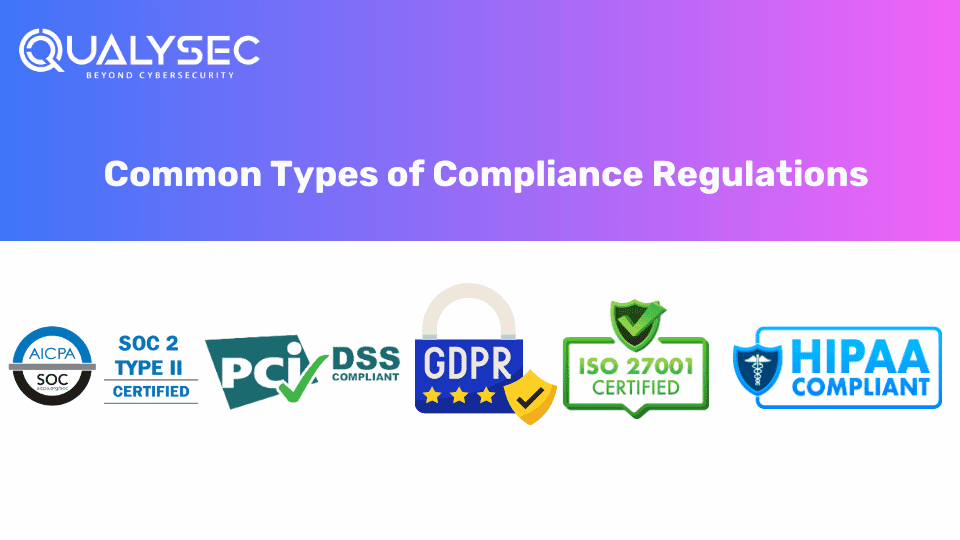
PCI DSS
The Payment Card Industry Data Security Standard (PCI DSS) establishes regulatory guidelines to ensure the security of credit card information. Organizations must confirm their compliance every year once. The standard is based on six principles:
-
- Create and manage a secure network.
- Protect cardholder data.
- Maintain a vulnerability management program.
- Implement tight access controls.
- Regularly monitor and test networks.
- Maintain an information security policy.
SOC 2
This regulation stands for System and Organization Control 2 and it is based on key principles such as safety, availability, process, integrity, secrecy, and privacy.
SOC 2 reports are specific to the institution that generates them, and each organization designs its controls to meet one or more of the trust criteria. While SOC 2 compliance is not obligatory, it is crucial for safeguarding data for software as a service (SaaS) and cloud computing providers.
GDPR
GDPR Stands for General Data Protection Regulation. The European Union (EU) established this set of regulations in 2018 to protect personal information. They do this to ensure that the companies collecting people’s information protect their privacy and treat the data as sensitive. The GDPR is based on four key principles:
-
- Lawfulness, fairness, and transparency in data processing.
- Purpose limitation: Data should only be used for the purpose for which it was collected.
- Data minimization: Collect only the data that is necessary for the purpose.
- Accuracy: Ensure that the data collected is accurate and up to date
ISO 27001
It is a regulatory standard that provides guidelines for firms to manage and minimize information security risks. ISO 27001 requires firms to maintain a process for identifying, assessing, and managing these risks. ISO 27001 also ensures that firms implement security protocols to mitigate threats.
-
- ISO 27001 outlines best practices to protect sensitive data.
- The standard requires enterprises to develop and apply a process for identifying risks.
- Enterprises must implement various security protocols to mitigate these threats in compliance with ISO 27001.
HIPAA
HIPPA (Health Insurance Portability and Accountability Act) was introduced in 1996. It is an act that protects the privacy and security of patient data, medical records, and healthcare-related information. HIPPA helps corporations to minimize healthcare fraud.
-
- Businesses handling health data must ensure proper measures for data protection.
- Implementation of HIPPA is necessary for the administrative side of the healthcare sector as patient data is sensitive information.
- HIPAA audits reassure patients that their private information is secure and not shared improperly.
Internal Compliance Audit vs External Compliance Audit
A Compliance Security audit is categorized into two types, Internal and External. While an organization can choose between any of the two, the key differences between these two compliance audits are as follows:
An internal Compliance Audit is an independent and consulting audit that is designed to improve the firm’s operations. This helps firms to ensure a systematic structure and a different approach, and also it helps in preventing risks.
1. Internal Auditing
-
- Conducted by internal auditors who are employees of the organization.
- Focuses on evaluating the effectiveness of internal controls, risk management, and governance processes.
- Helps identify areas for improvement in operations and efficiency.
- Provides recommendations for enhancing internal processes and controls.
- Assists in ensuring compliance with internal policies and procedures.
- Helps management in achieving organizational objectives and goals.
During an External auditing, an external firm performs auditing. The external auditing firm provides independent suggestions based on the financial statements and operations report.
2. External Auditing
- Conducted by external auditors who are not employees of the organization.
- Focuses on reviewing and verifying financial statements for accuracy and compliance with accounting standards.
- Provides an independent opinion on the fairness and reliability of financial statements.
- Assists in building trust and credibility with stakeholders, such as investors, creditors, and regulatory bodies.
- Helps detect and prevent fraud and errors in financial reporting.
- Ensures compliance with legal and regulatory requirements.
Guidelines for a Successfully Compliance Audit
Here are some guidelines for successfully navigating a compliance audit. These aspects play an important role in navigating through a successful compliance Security audit framework and they are as follows:
| Aspect | Description |
|---|---|
| Foundation of Security | Assessing Risks forms the foundation of any security. Cybersecurity is needed to assess these risks for the firms so that they can adhere to compliance. |
| Proactive Mitigation | Proactive Mitigation helps firms to mitigate risks early and minimize the risks. Mitigation can be done only when the security is assessed through auditing. |
| Identifying Weaknesses | Once the auditing is done, the network or the data should be assessed for weakness. Securing these weak spots can help firms mitigate potential threats. |
| Continuous Improvement | Regular auditing and vulnerability assessments can help the network and systems to be updated and improved as the technology progresses. |
| Regulatory Compliance | Simulating Scenarios can help auditing/cybersecurity companies predict the attacks and prepare the defenses accordingly. |
| Simulating Scenarios | Simulating Scenarios can help auditing/cybersecurity companies to predict the attacks and prepare the defenses accordingly. |
Benefits of Compliance Audit
There are serval advantages of conducting compliance audits. Compliance Security Audit Checklist is necessary for organizations to ensure that they abide by the industrial norms. Here are the benefits:
- Legal Compliance: Compliance ensures that the organization is following the applicable laws and regulations. Thus, reducing the risk of legal risk and fines.
- Risk Management: It helps organizations to identify and resolve risks related to non-compliance, which thus helps in preventing legal and financial liabilities.
- Improved Processes: It Identifies improvement areas in various areas such as policies, procedures, and internal controls. It helps in managing operations.
- Enhanced Reputation: The reputation of an organization matters the most to stakeholders, customers, and investors. Compliance helps the organization to enhance its reputation by following ethical cybersecurity practices.
- Cost Savings: Compliance helps in minimizing costly fines, legal fees, and other expenses associated with non-compliance.
A pentest report can help businesses in addressing and achieving regulatory compliance. Here’s a glance at a comprehensive pentest report.
Latest Penetration Testing Report
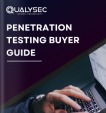
Conclusion
In conclusion, Cybersecurity Security audit are important as they help keep a company safe. They help ensure the company is following regulations to make it safe from various security risks. This can stop the company from getting into legal trouble or damaging its reputation.
Compliance Security audit Services help the firm check for risks. This makes sure that the data is protected, and also if a firm has a security plan. These audits help the company follow rules and stay ahead in cybersecurity. As the cybersecurity landscape changes, these rules get complicated and firms need to update themselves with these regulations. Hence, firms should take advice and help from experts who understand these terms and regulations.
FAQ’s
Q: Why are compliance Security audits important?
A: Compliance audits are important because they:
- Ensure adherence to laws and regulations.
- Identify and mitigate risks related to non-compliance.
- Help prevent legal issues and penalties.
- Maintain trust with stakeholders.
- Improve internal processes and operations.
Q: Why do businesses need compliance Security audits?
A: Businesses need compliance audits to:
- Stay compliant with laws, regulations, and industry standards.
- Protect their reputation and brand image.
- Demonstrate commitment to ethical business practices.
- Identify and rectify non-compliance issues.
- Enhance overall governance and risk management.





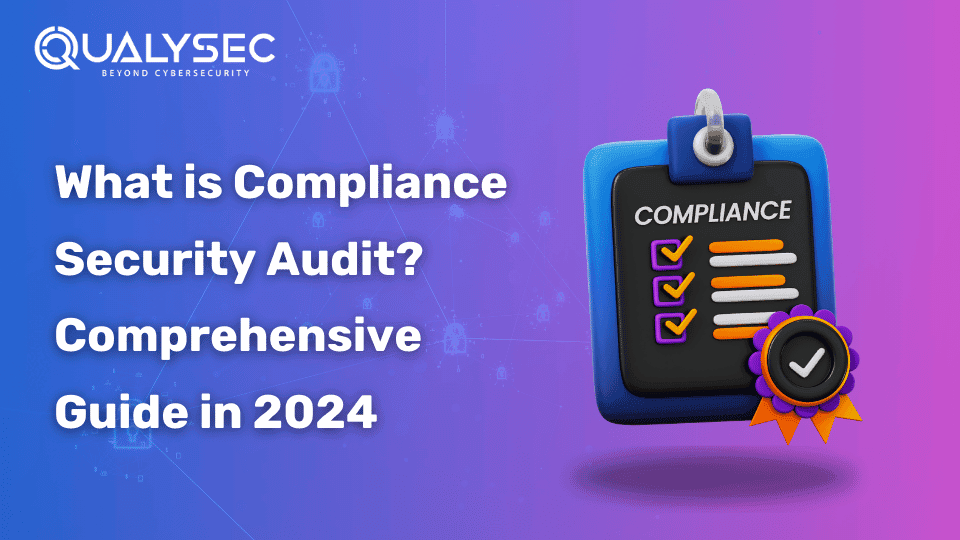



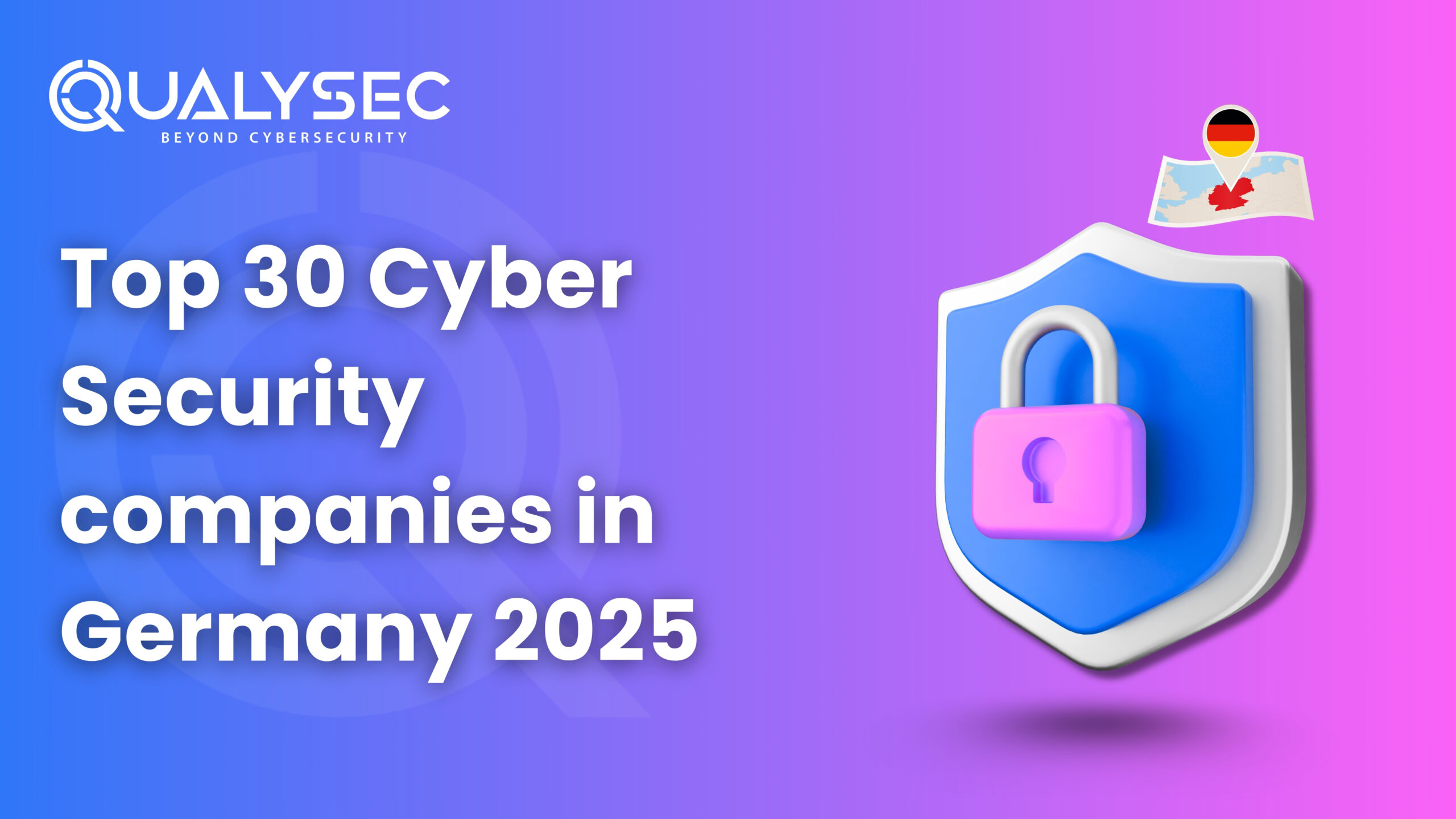
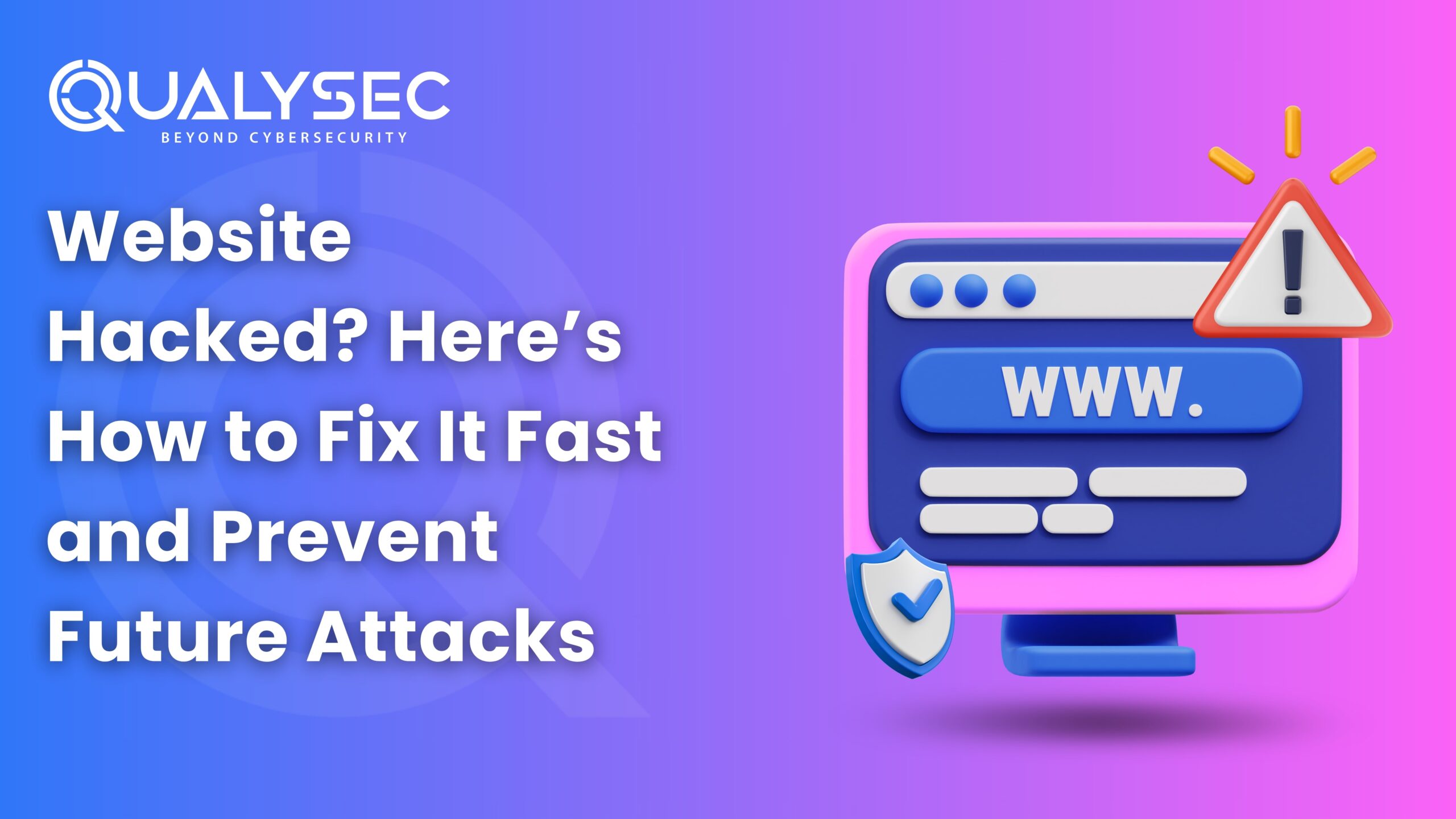
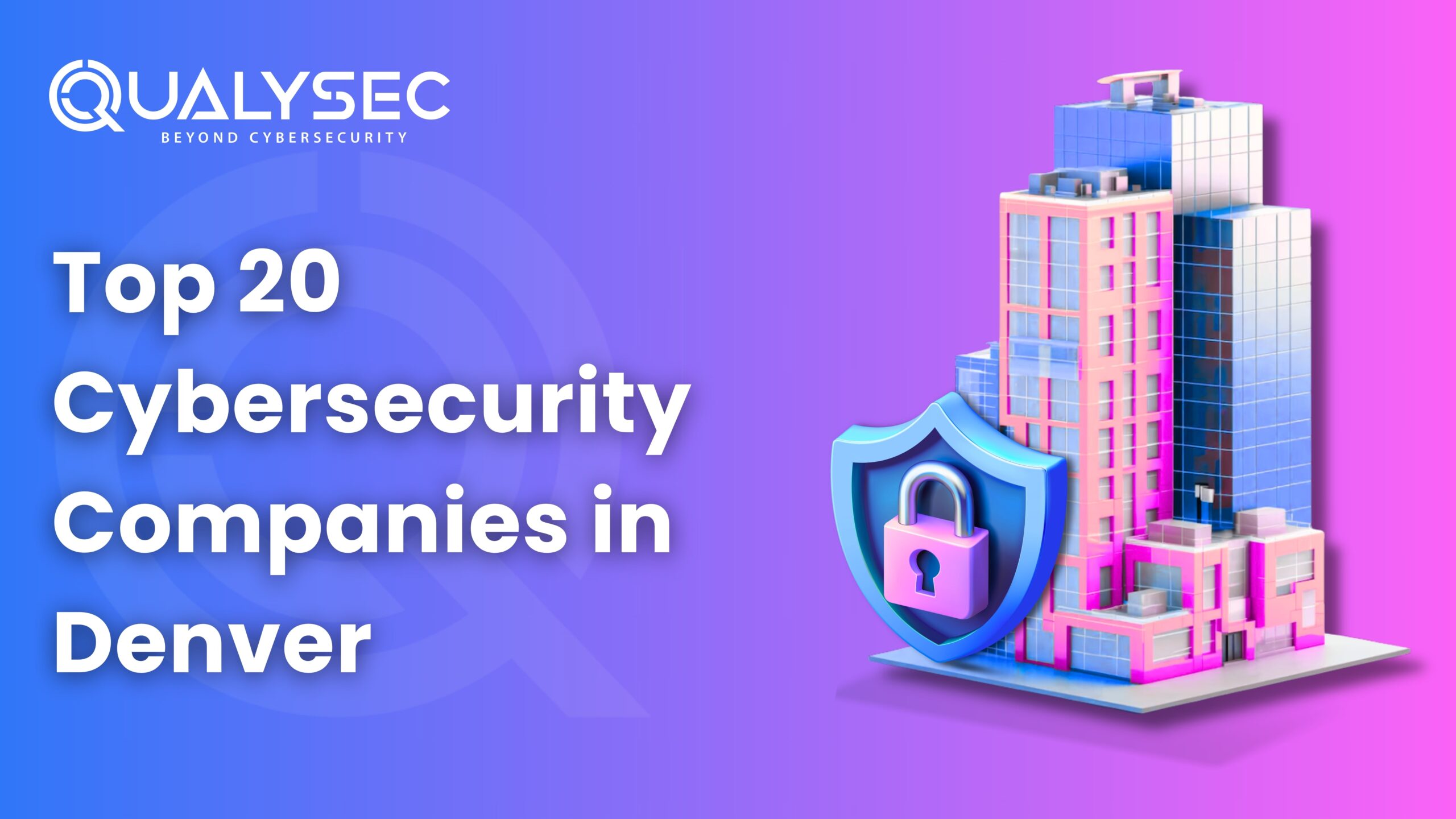
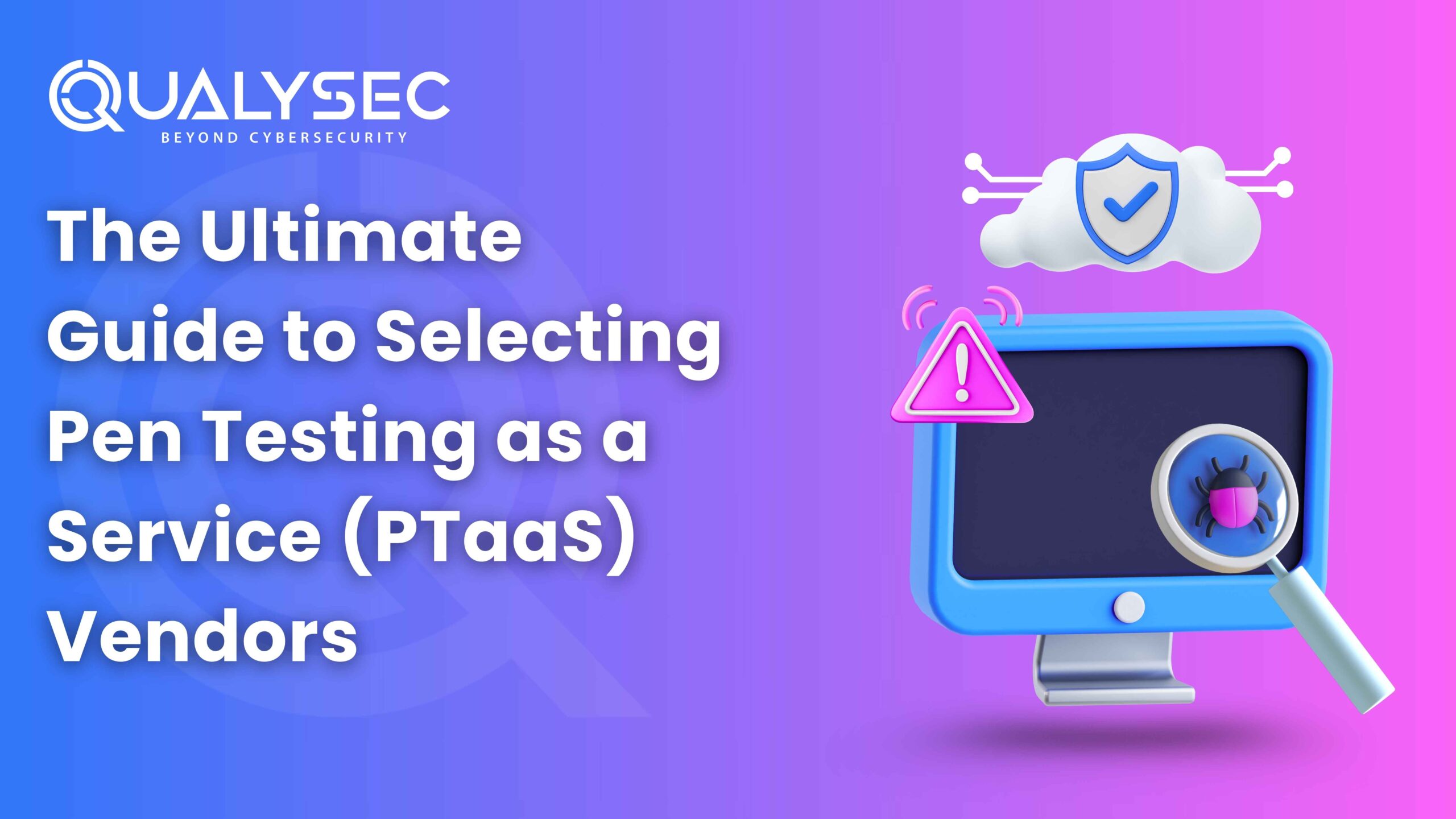
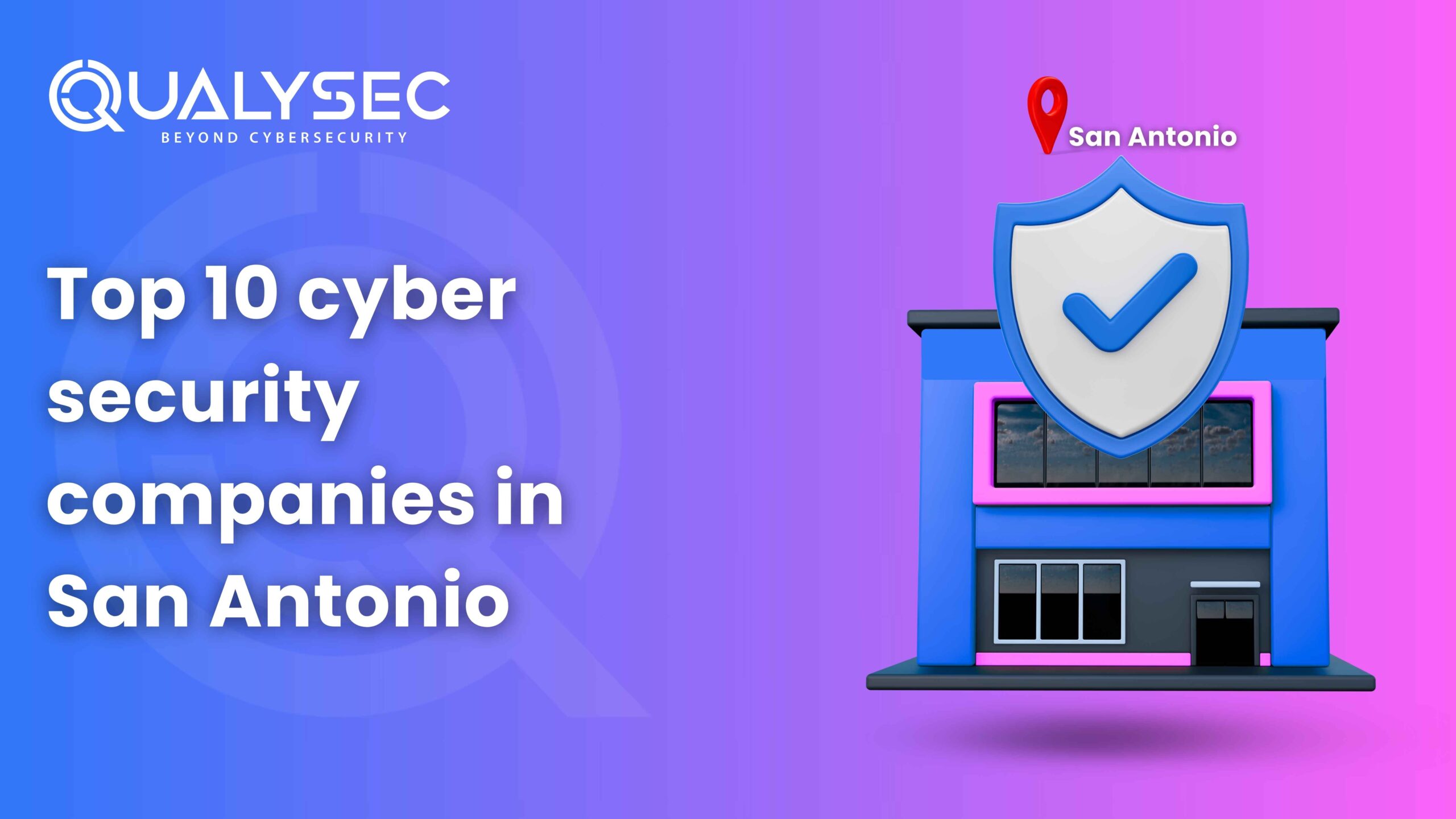
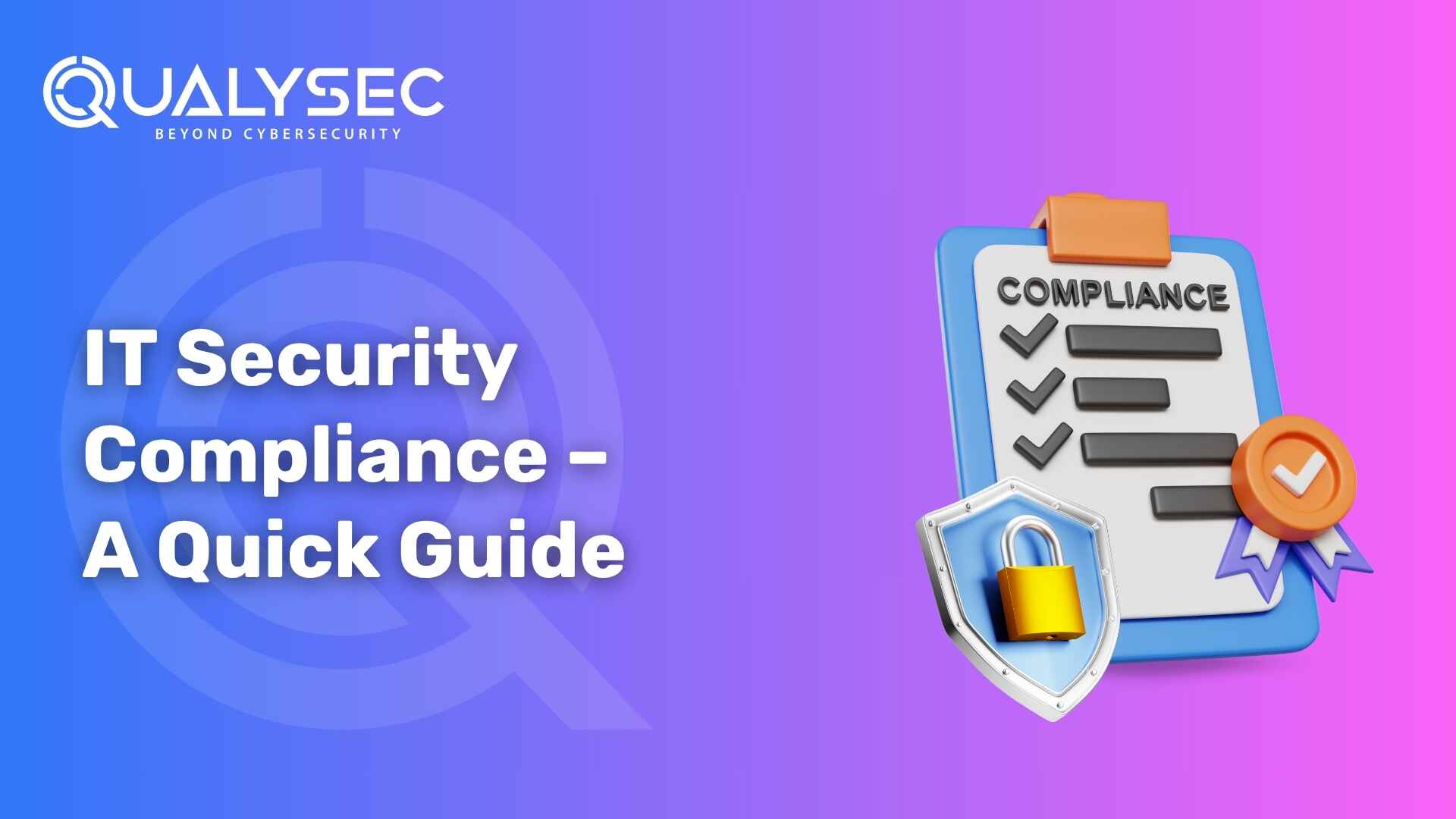
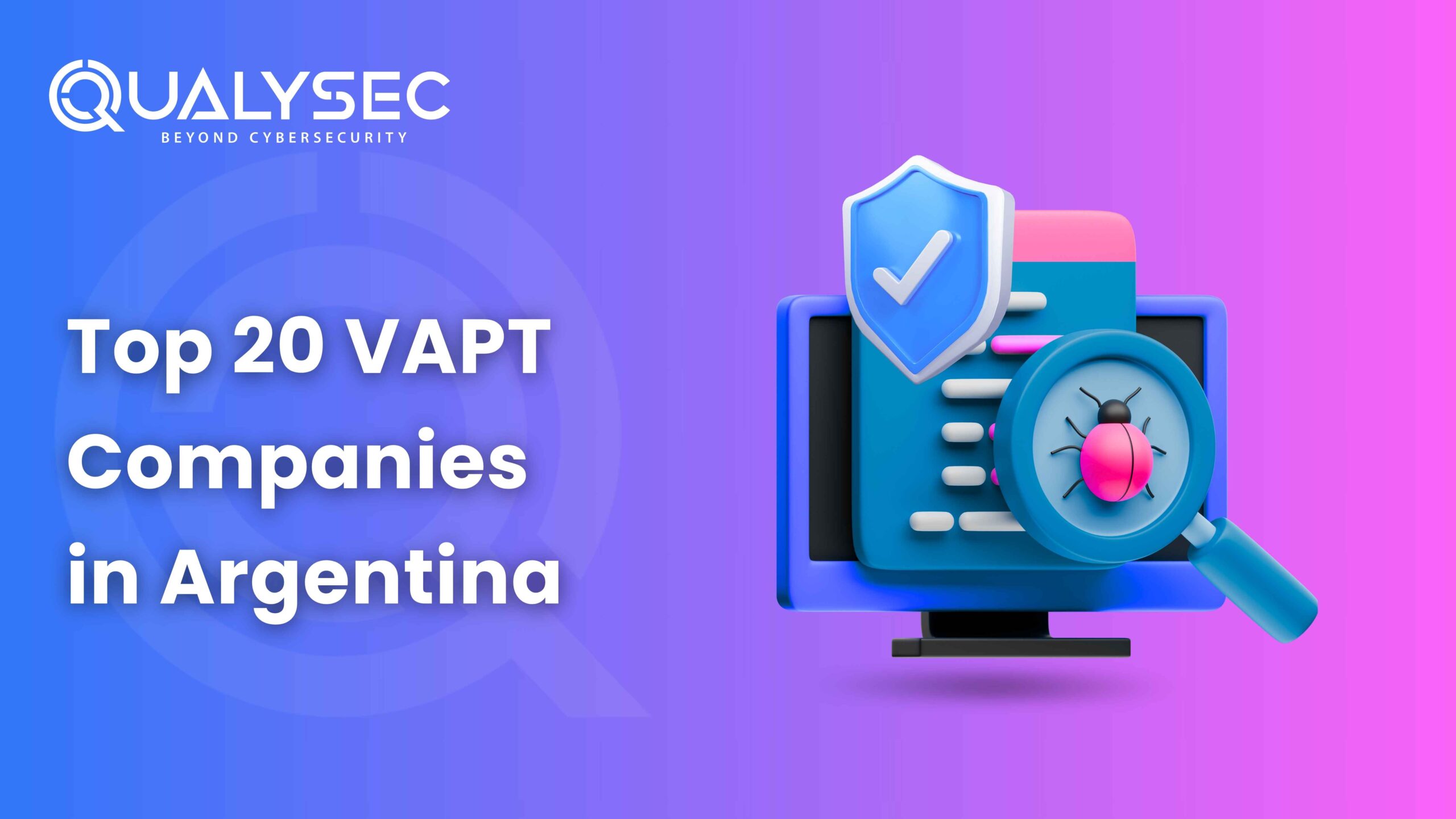
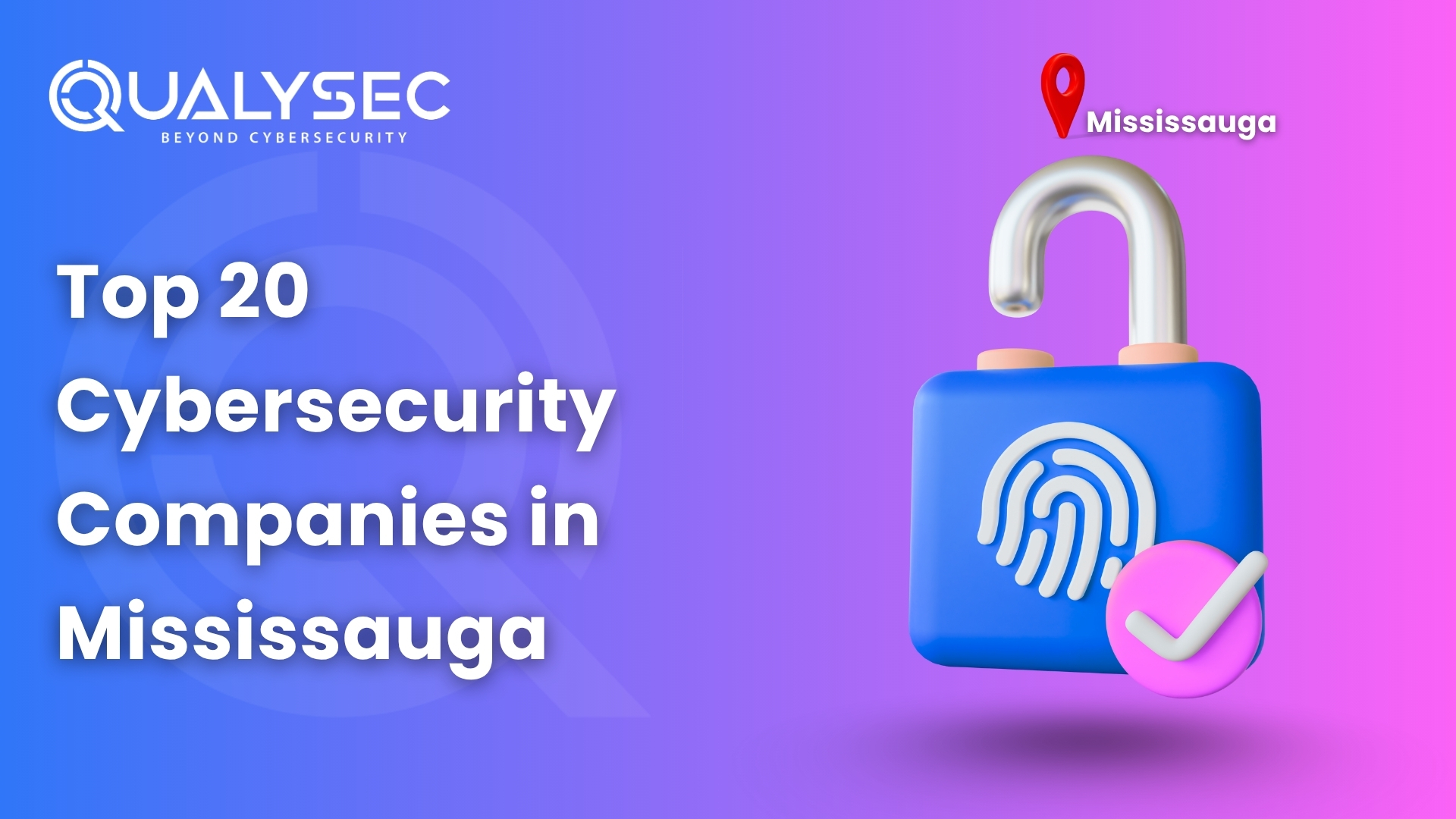

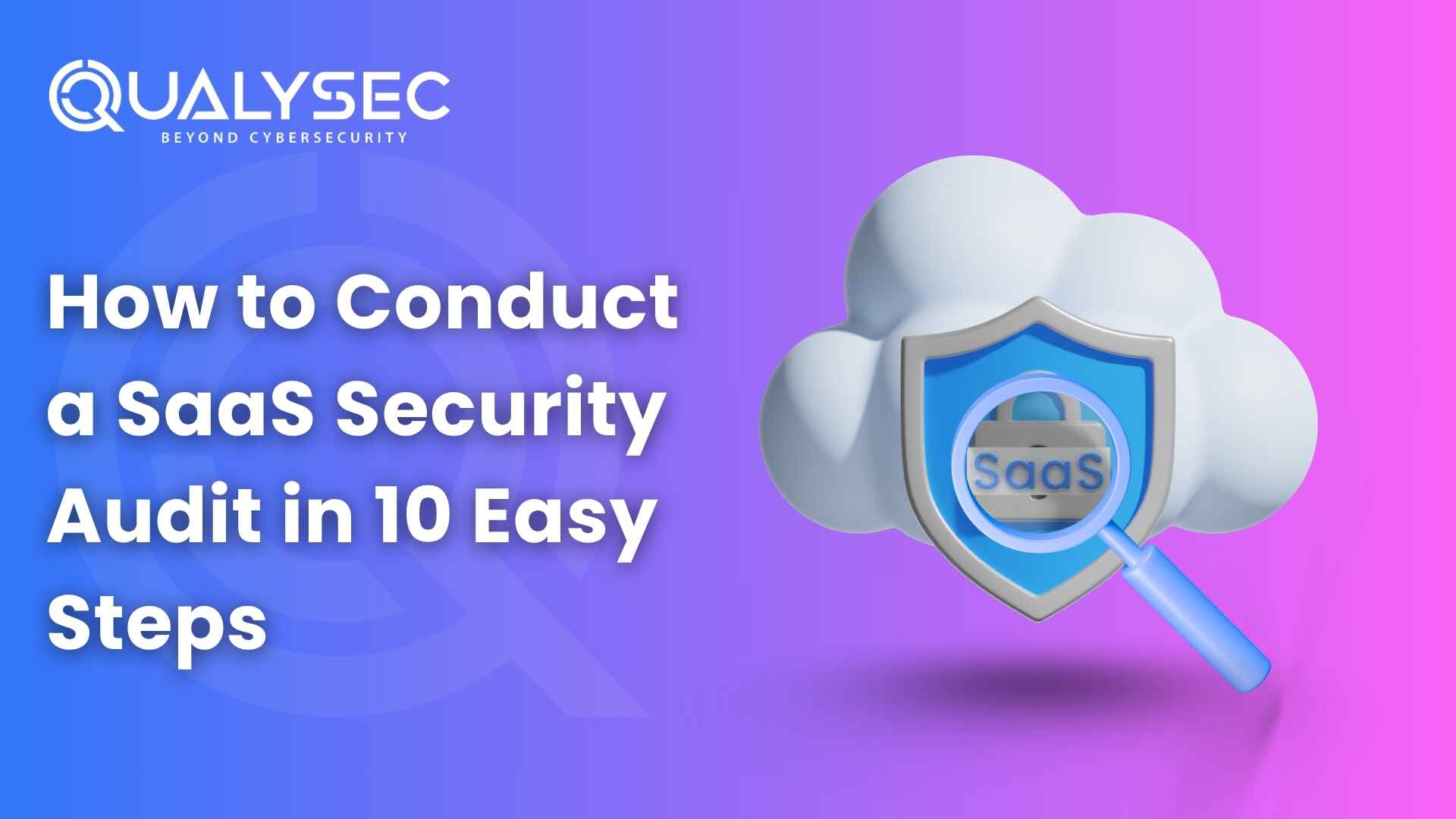
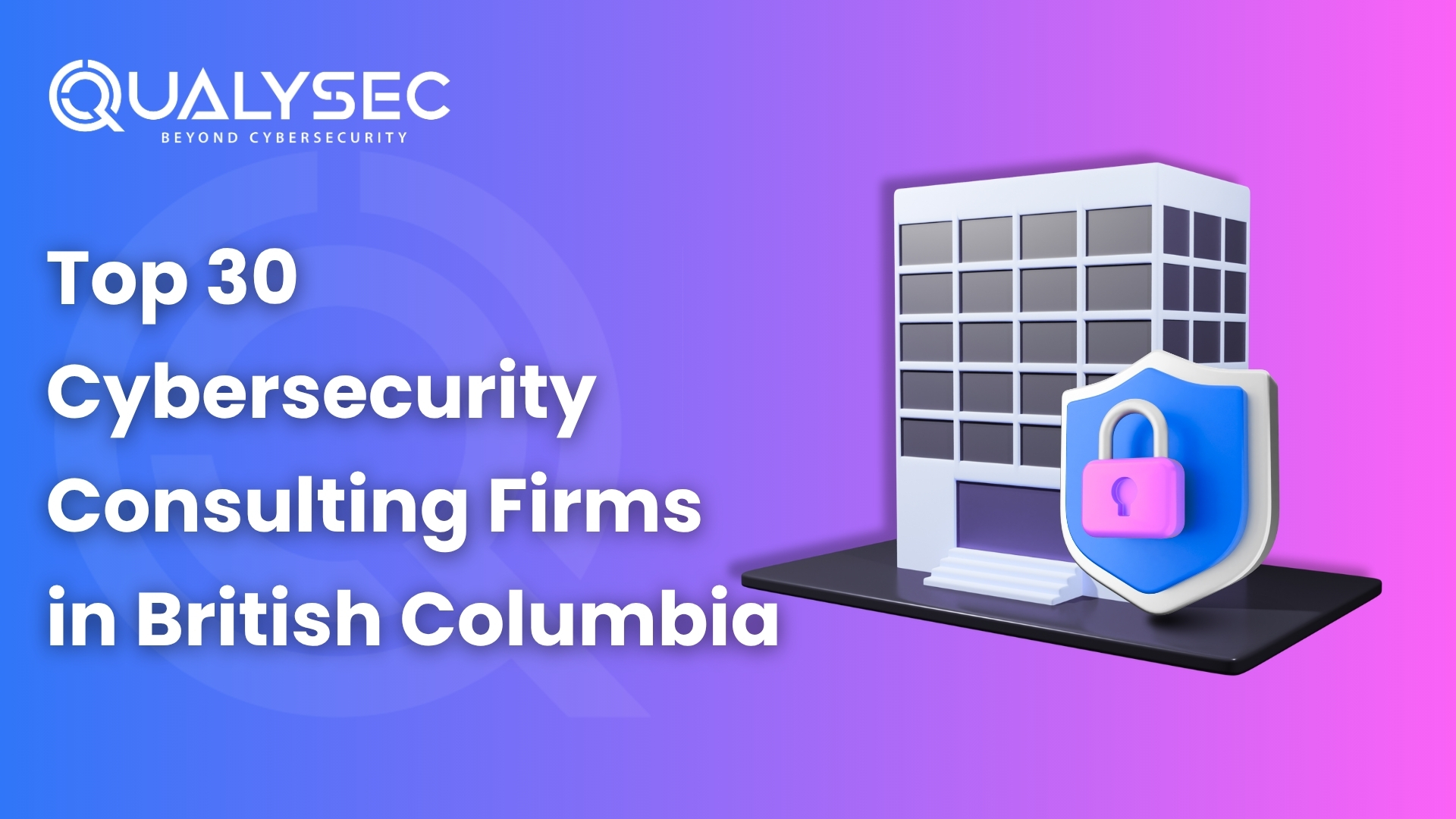

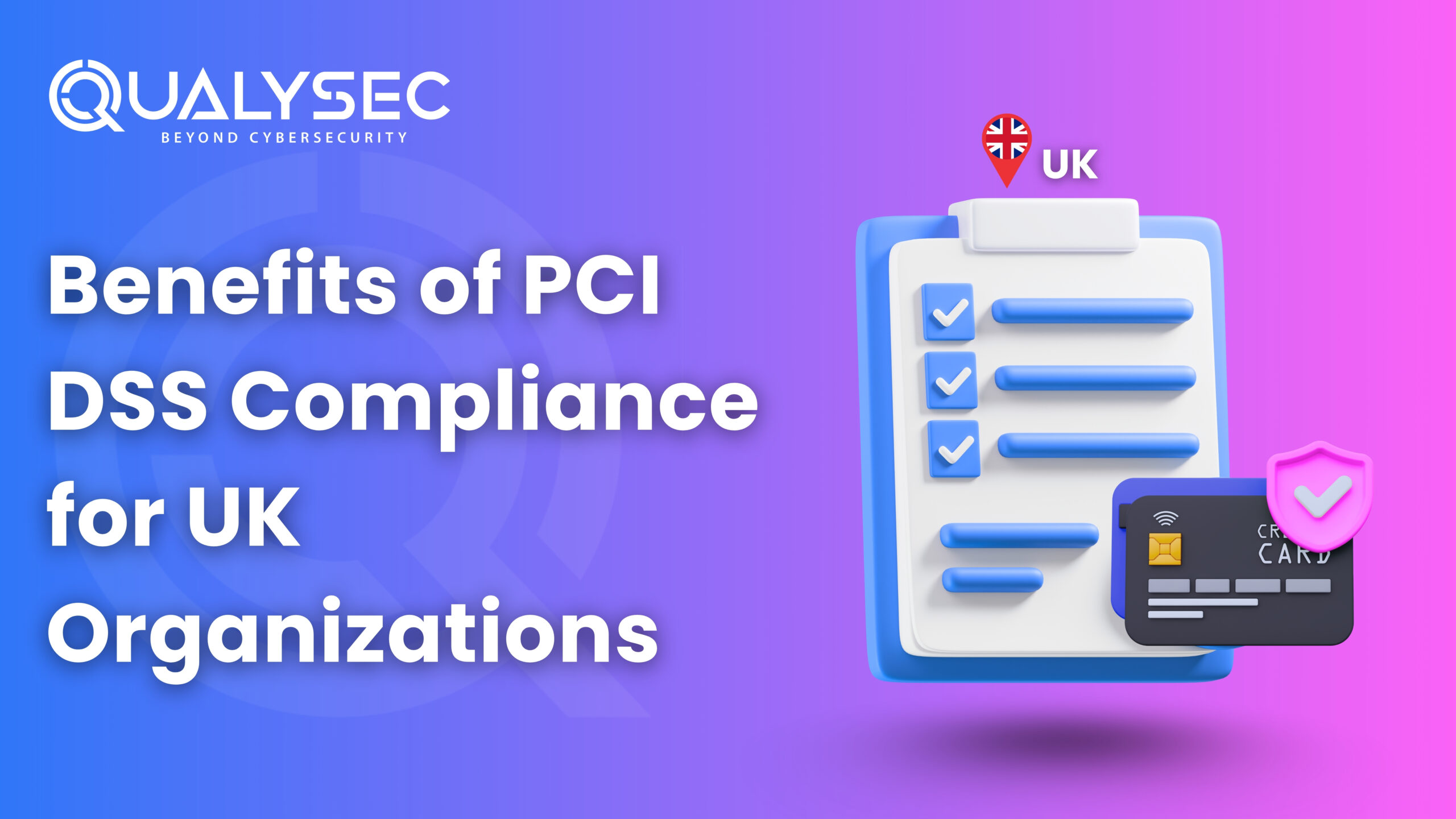

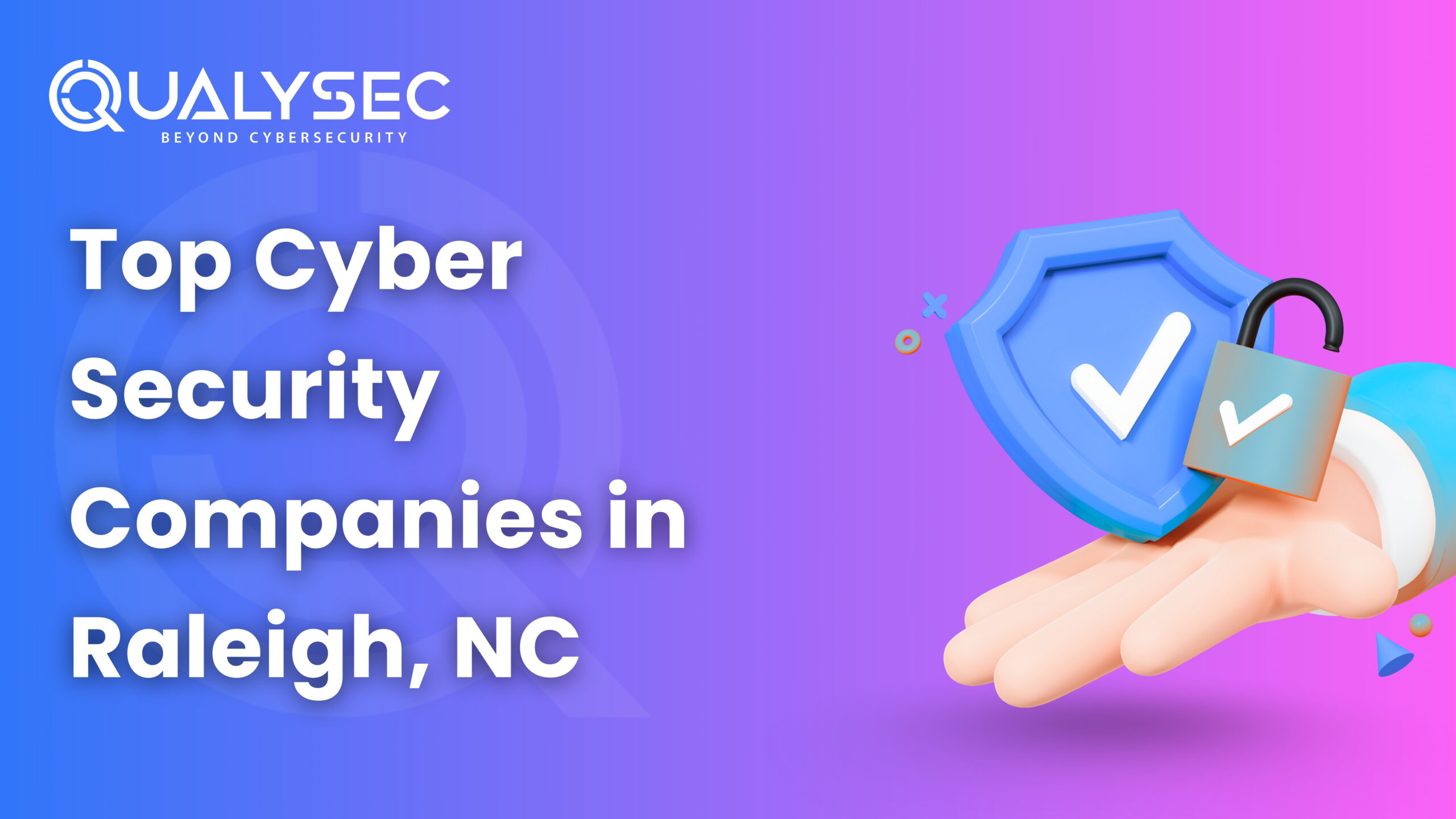
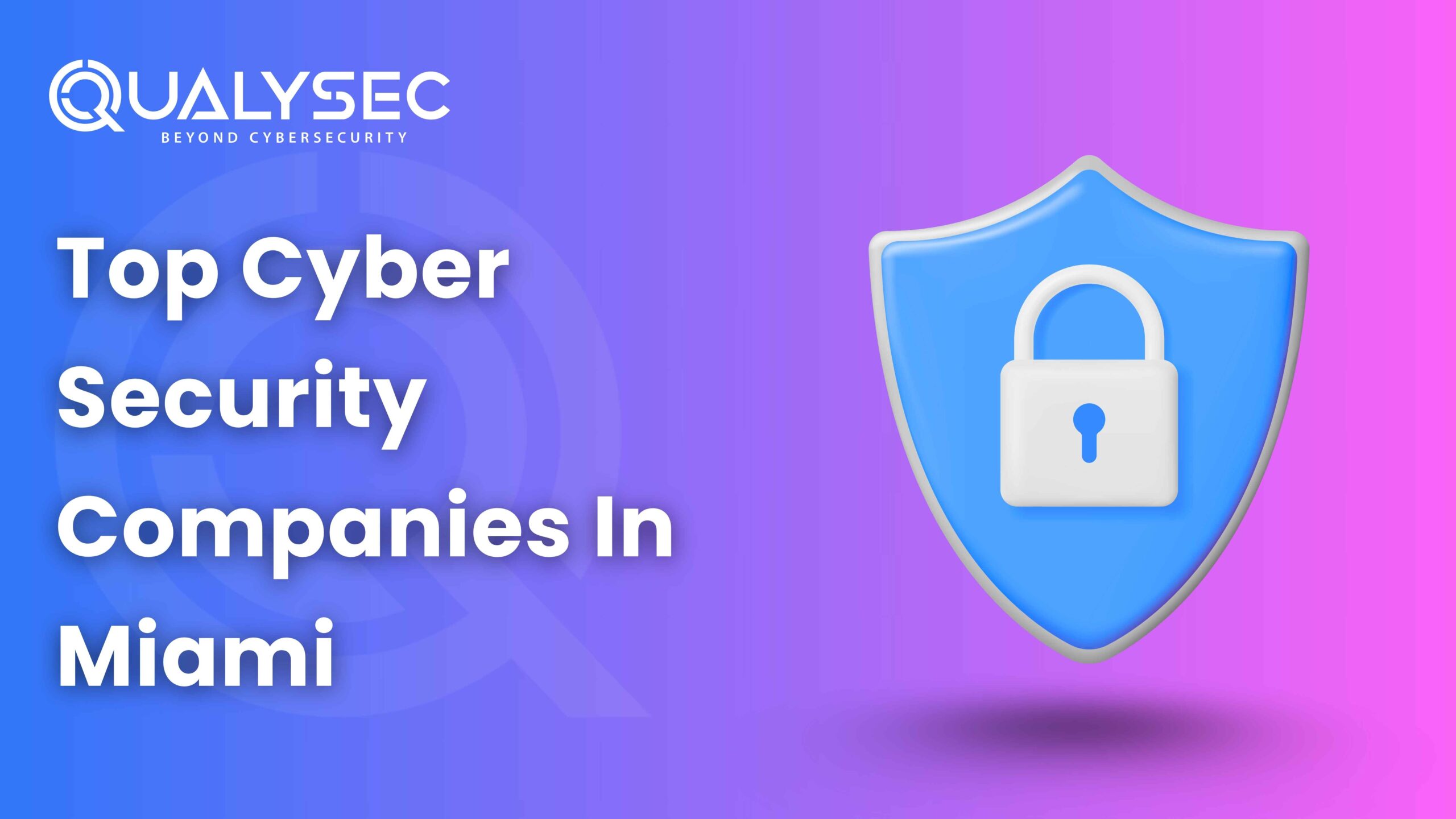

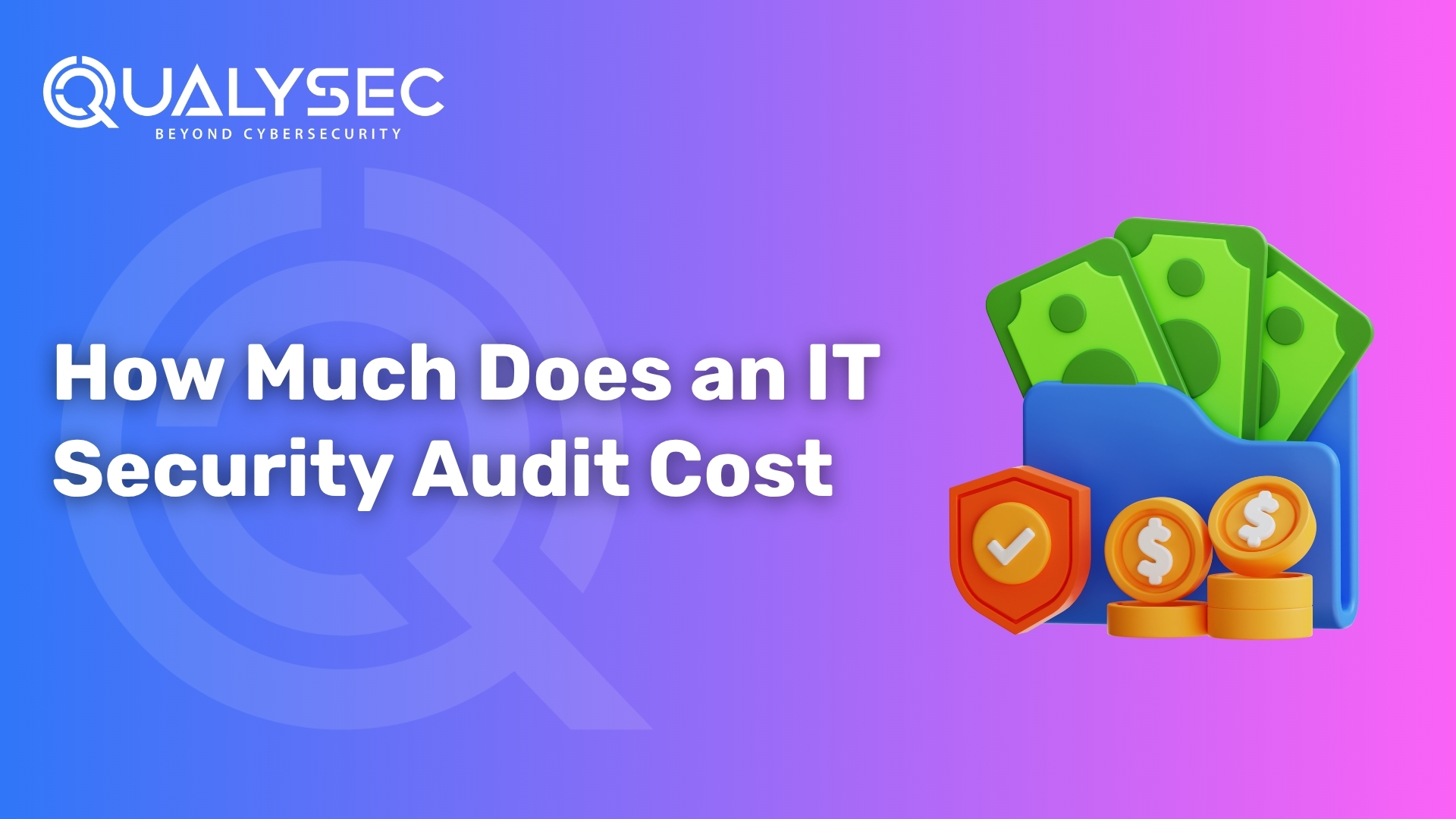
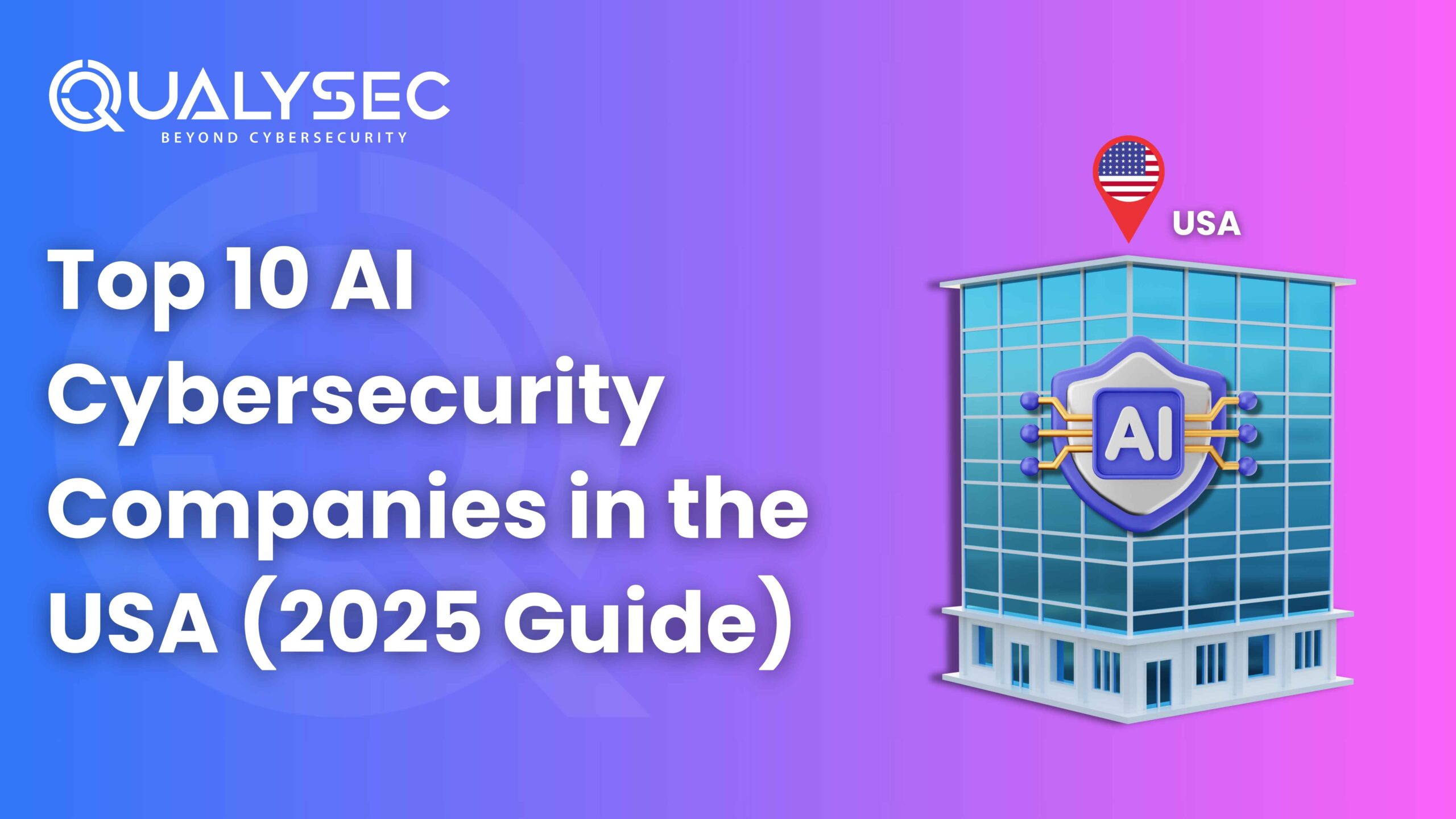
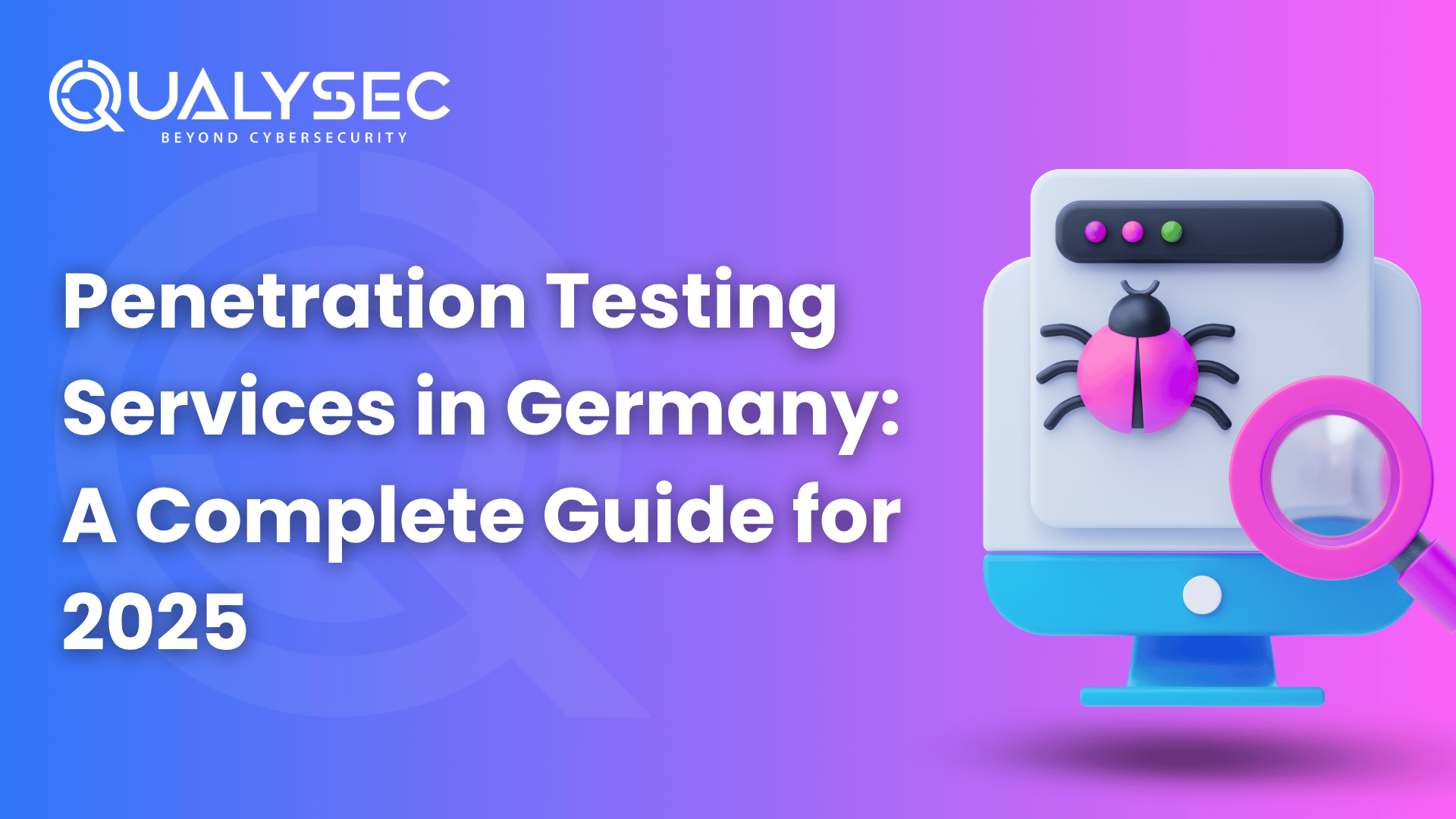
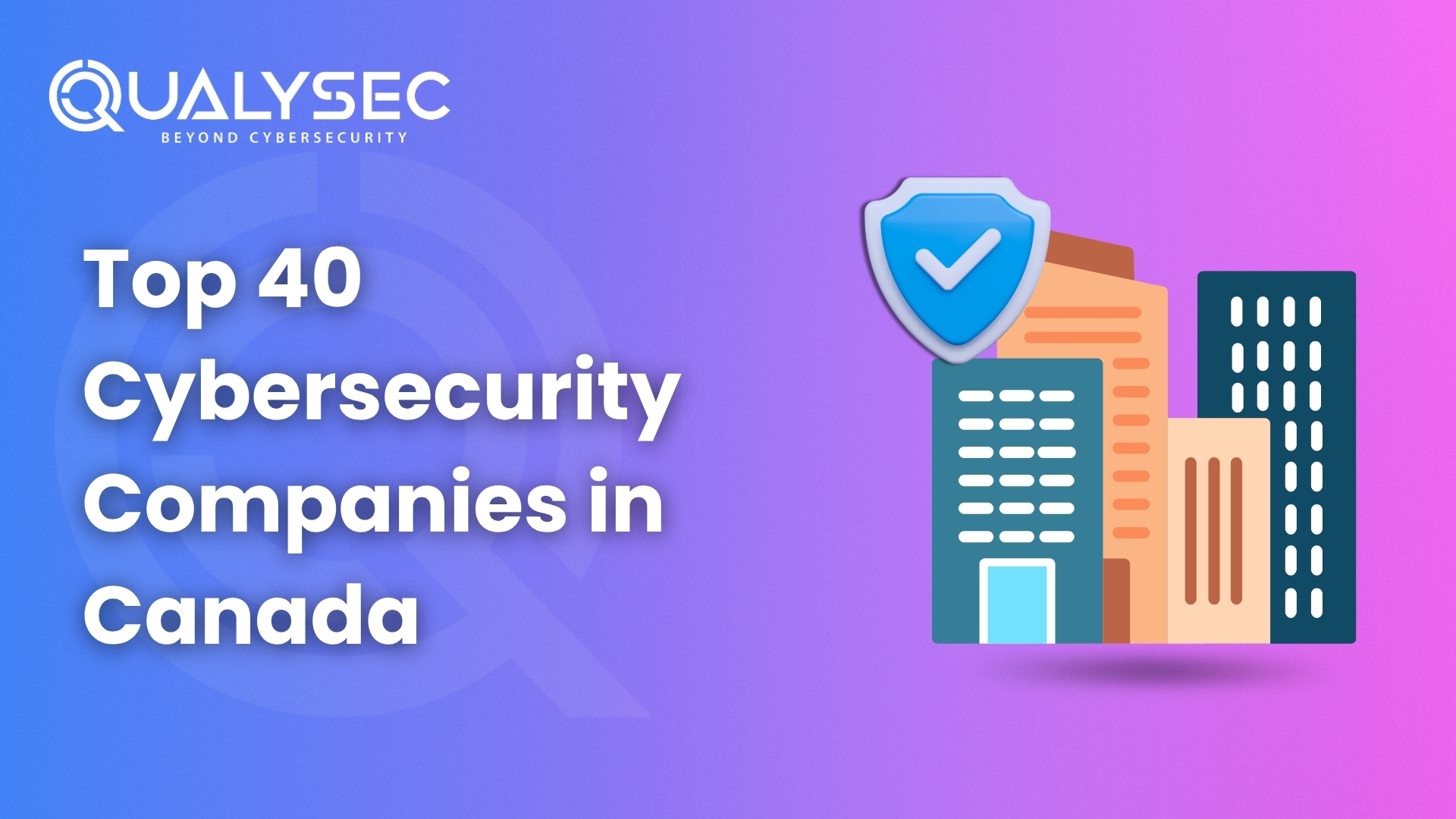
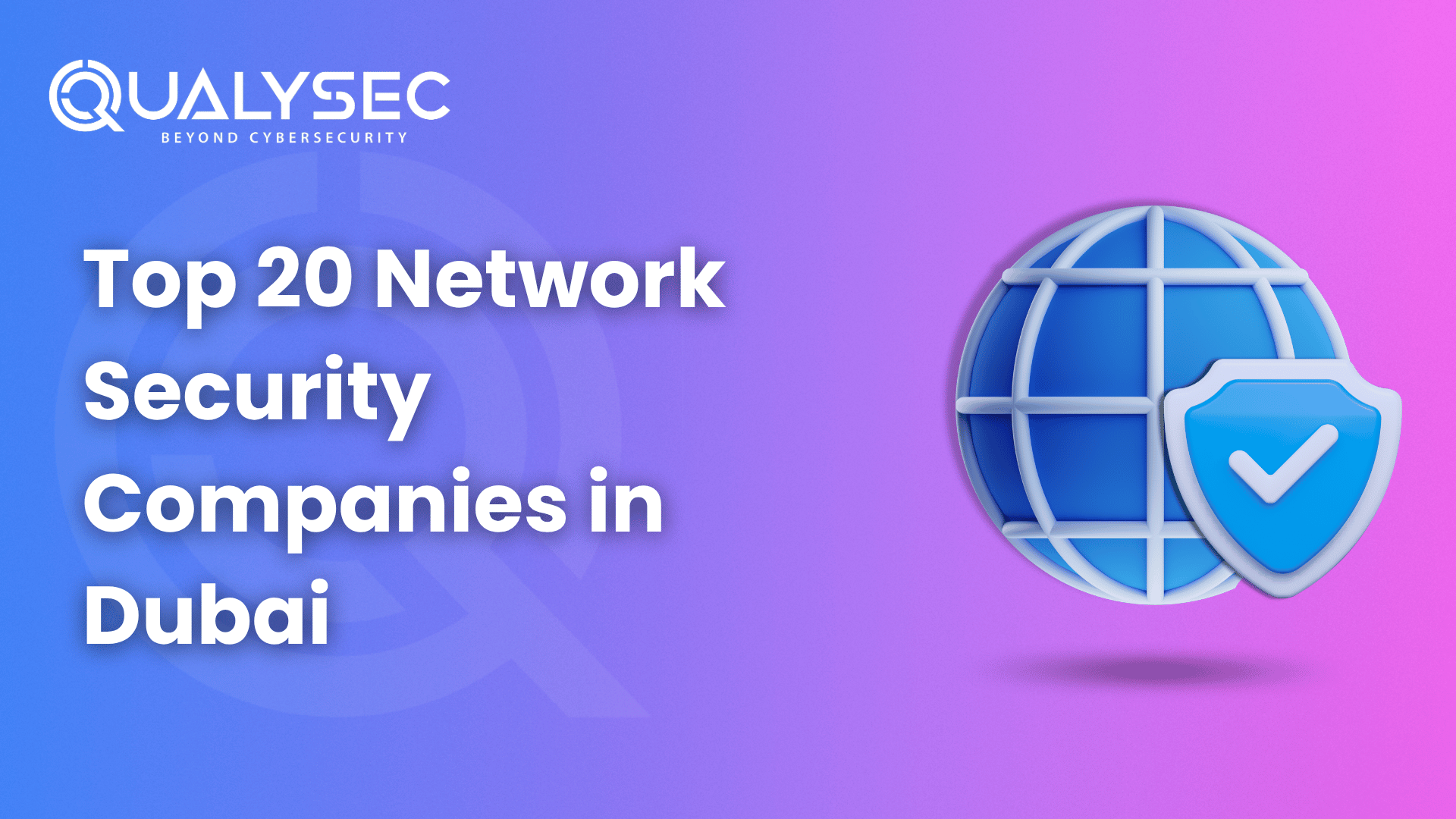
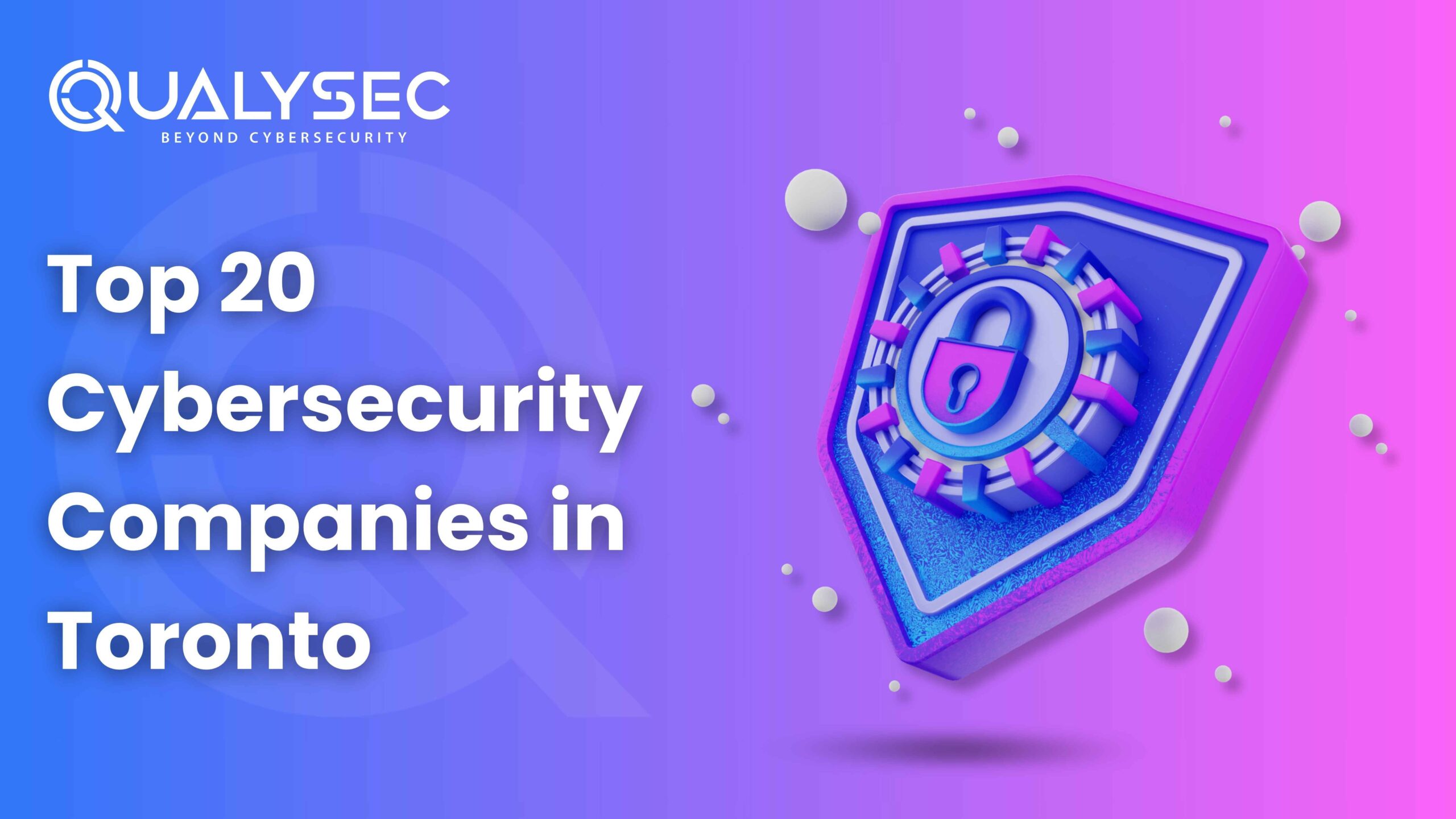
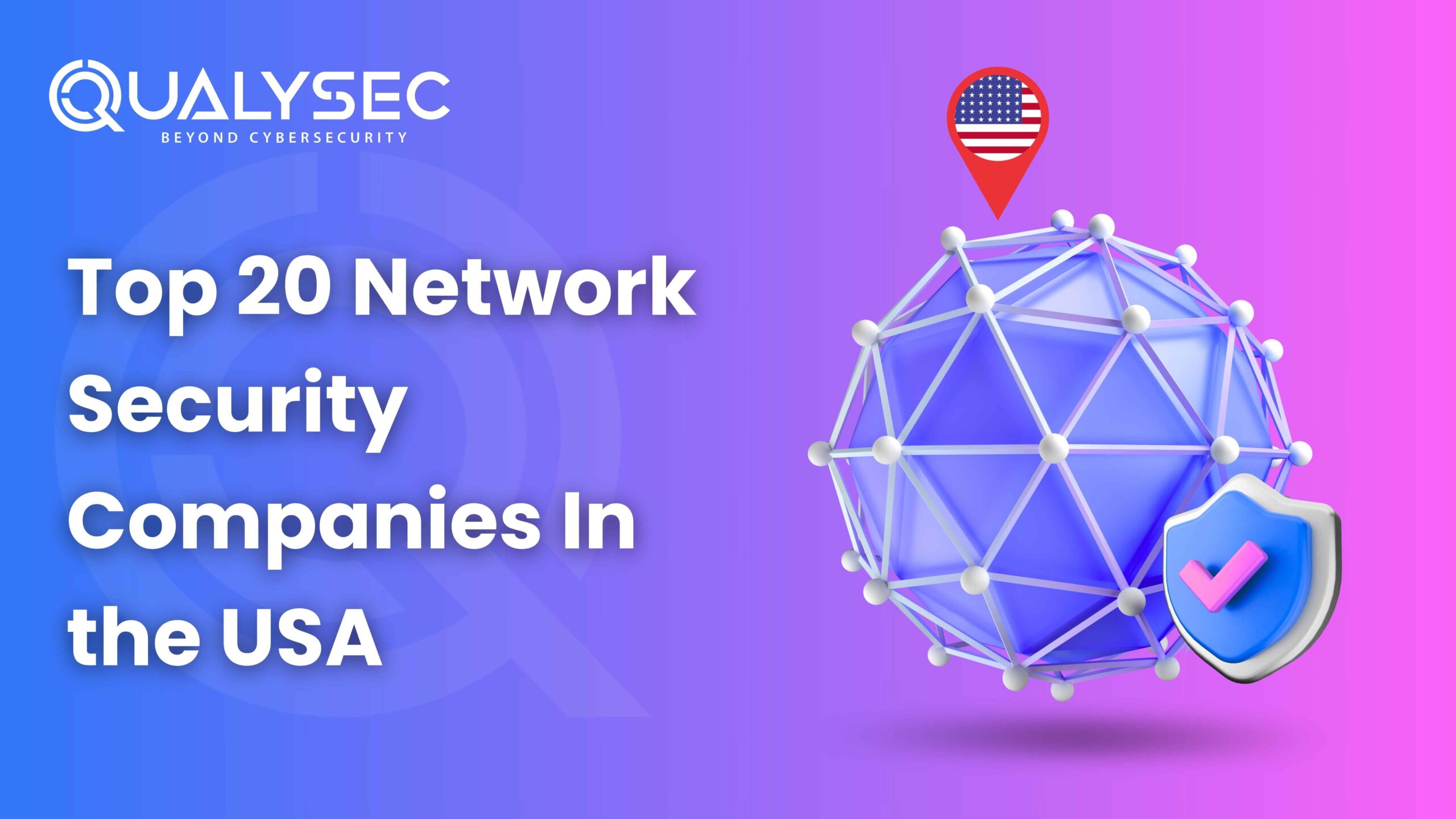
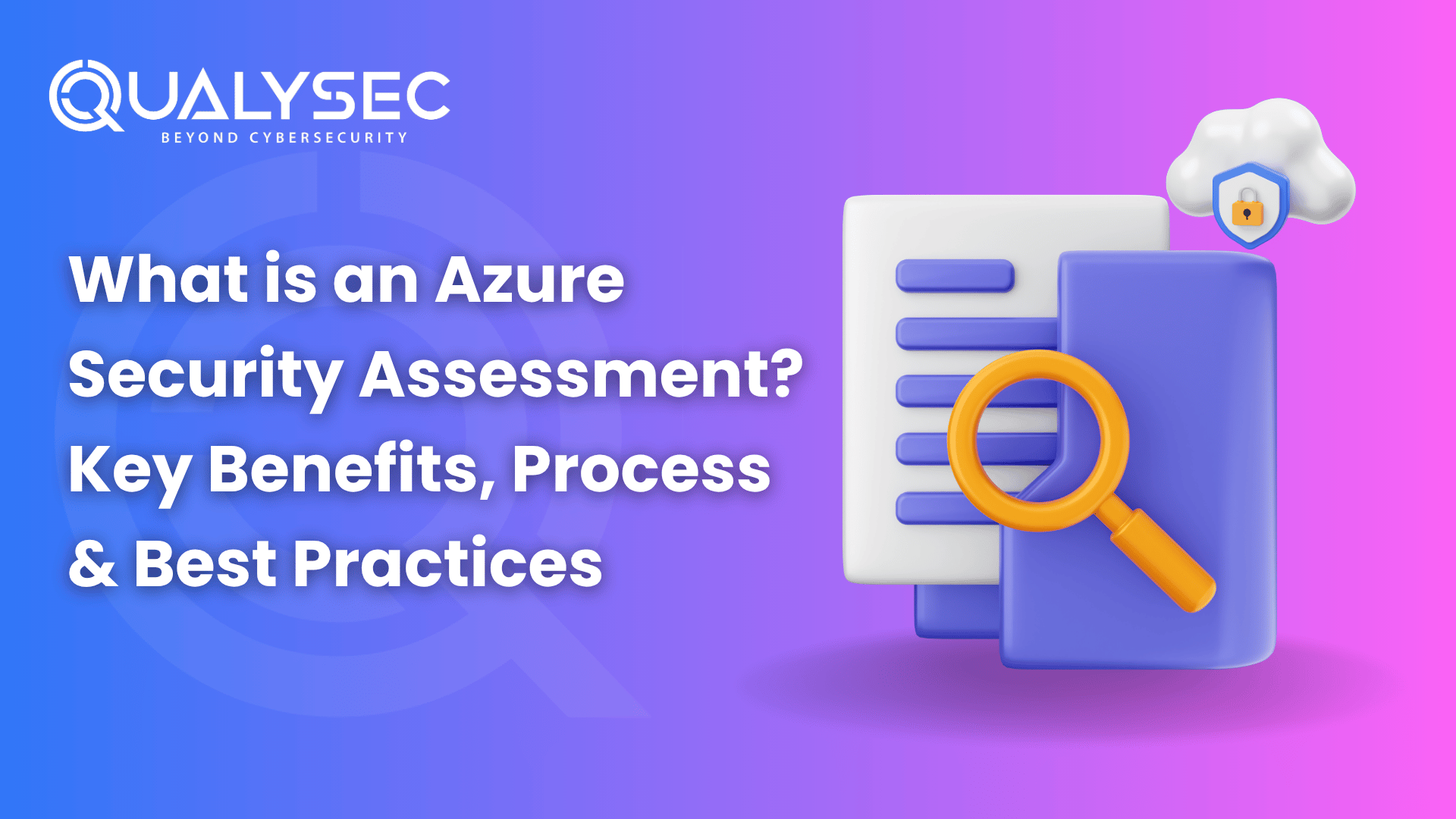
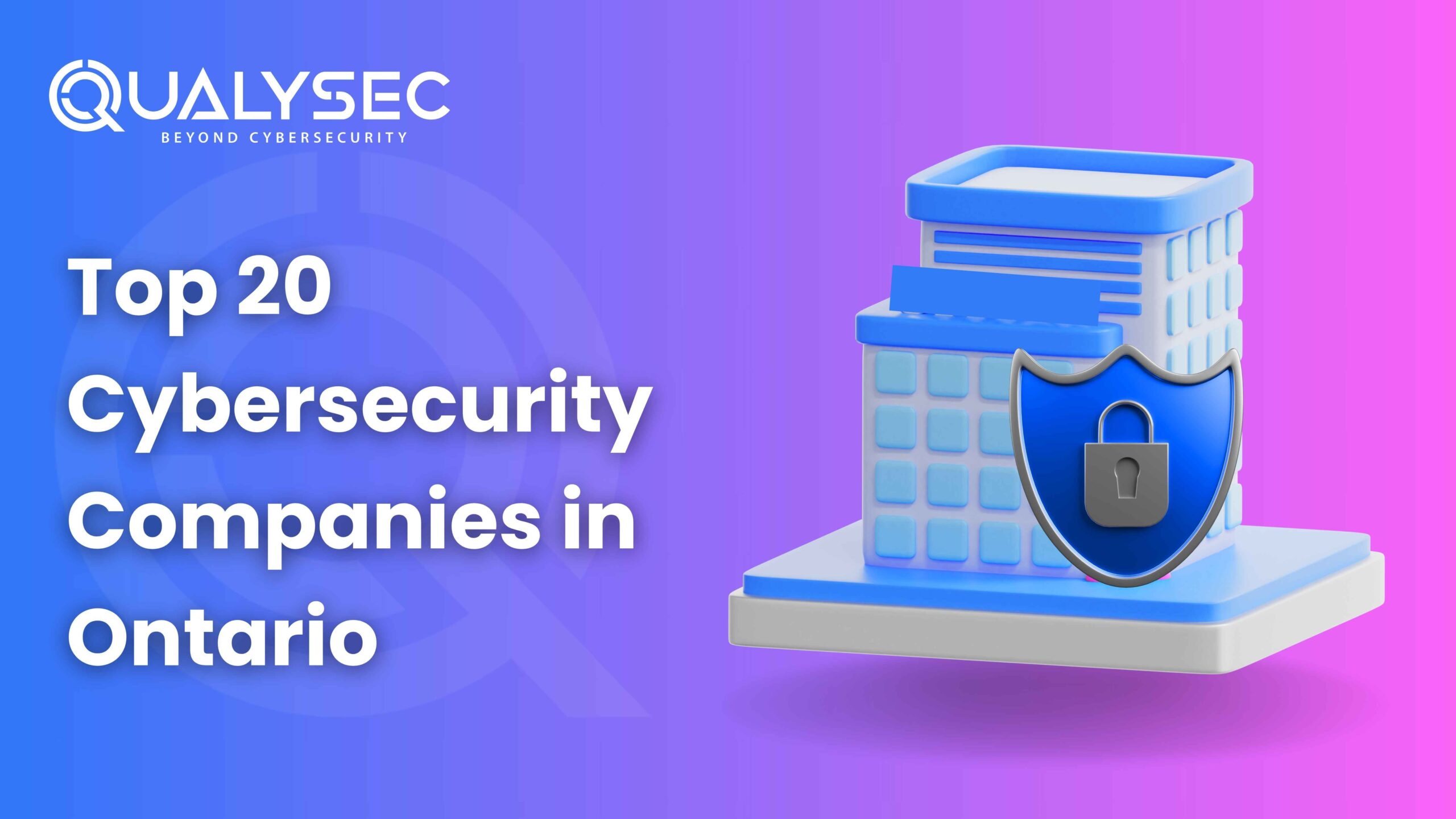
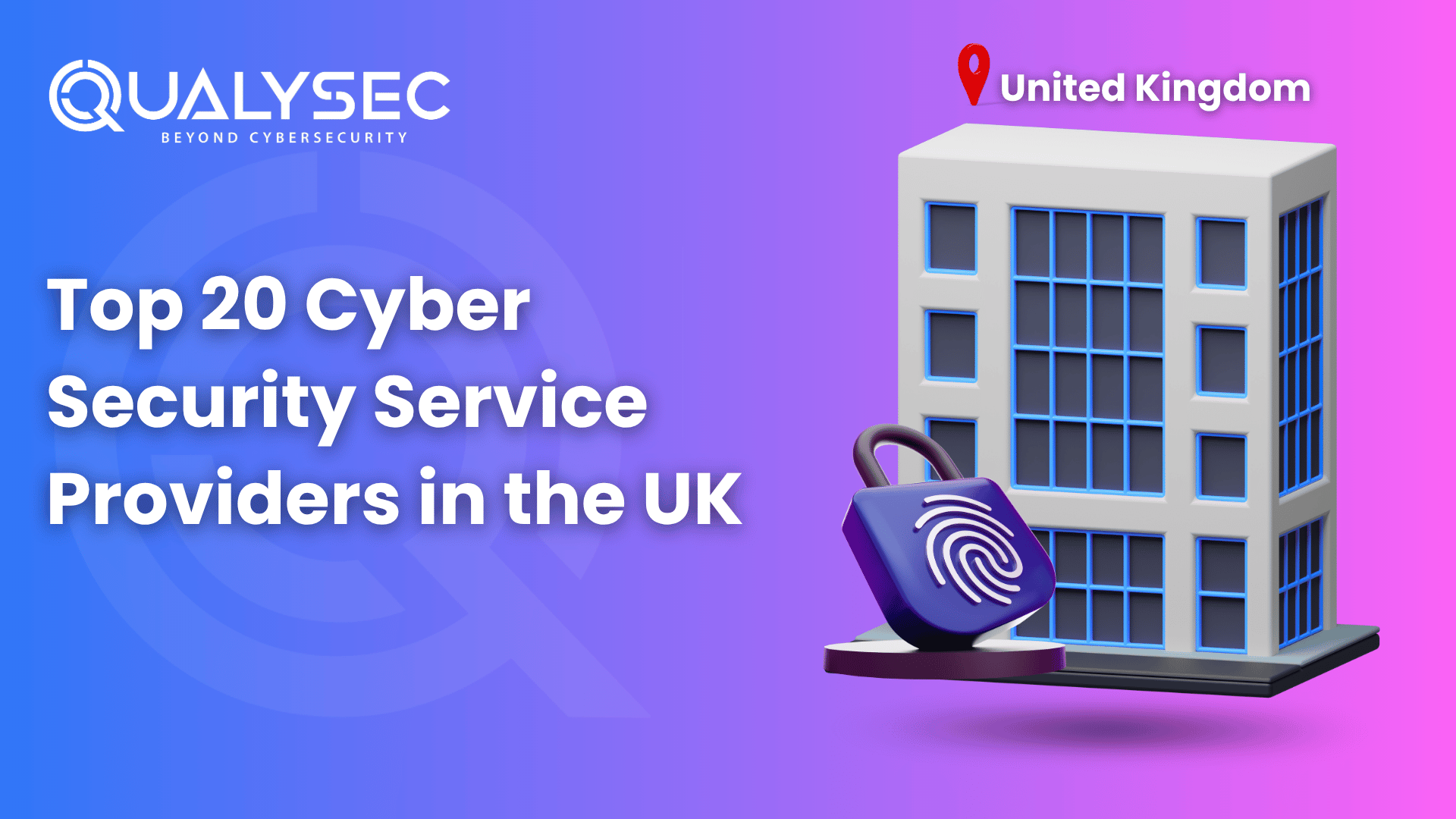
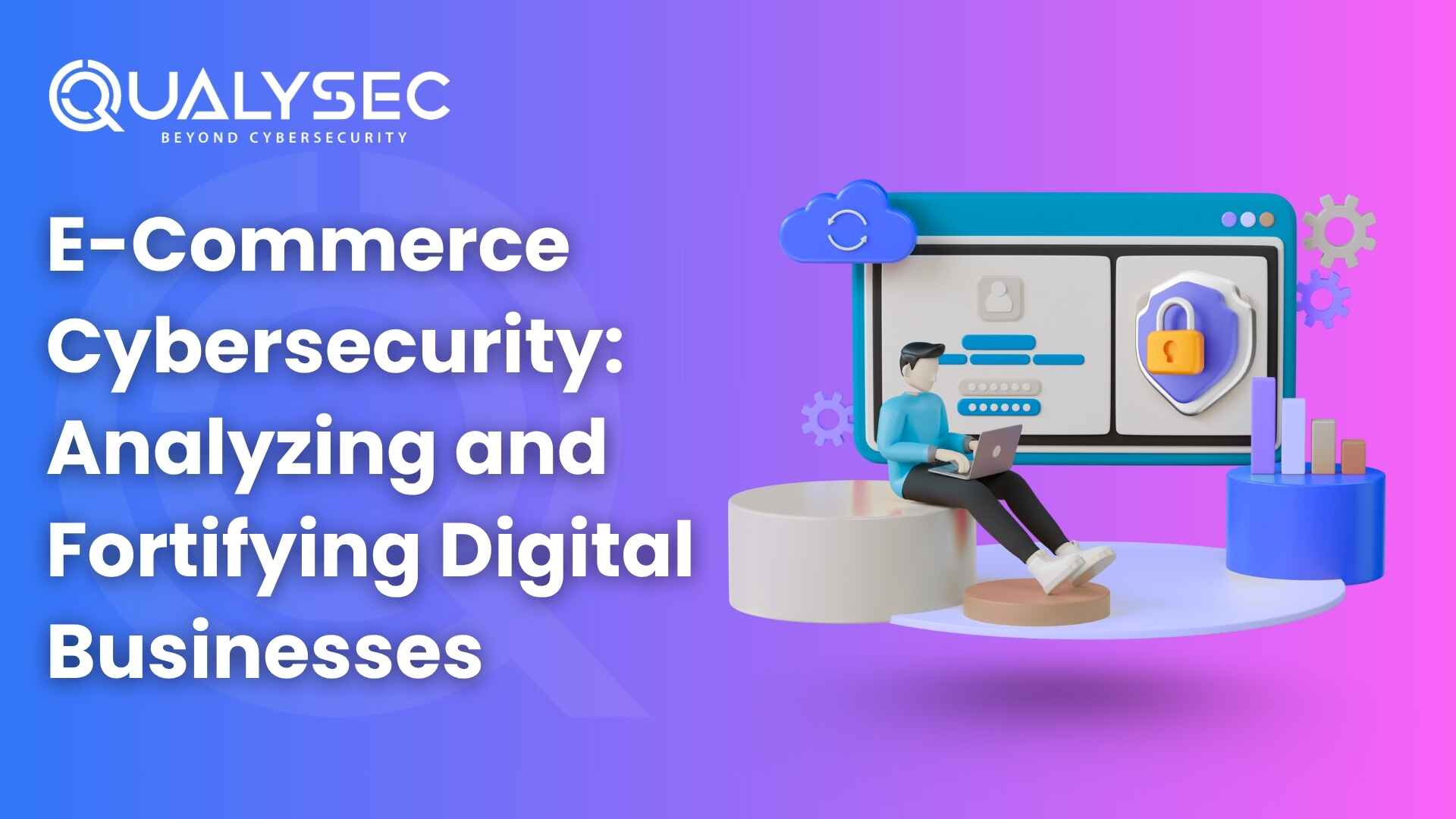
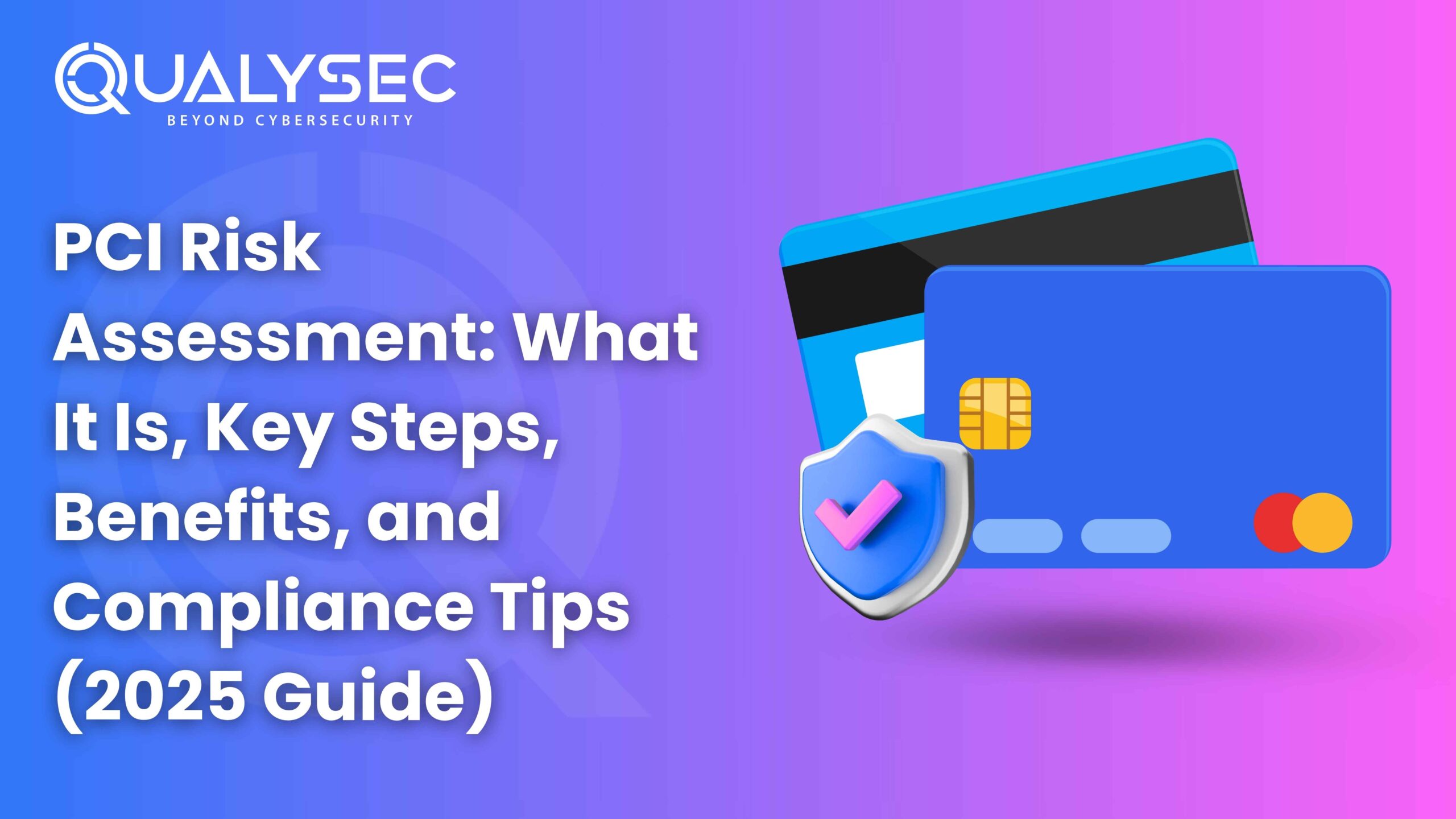
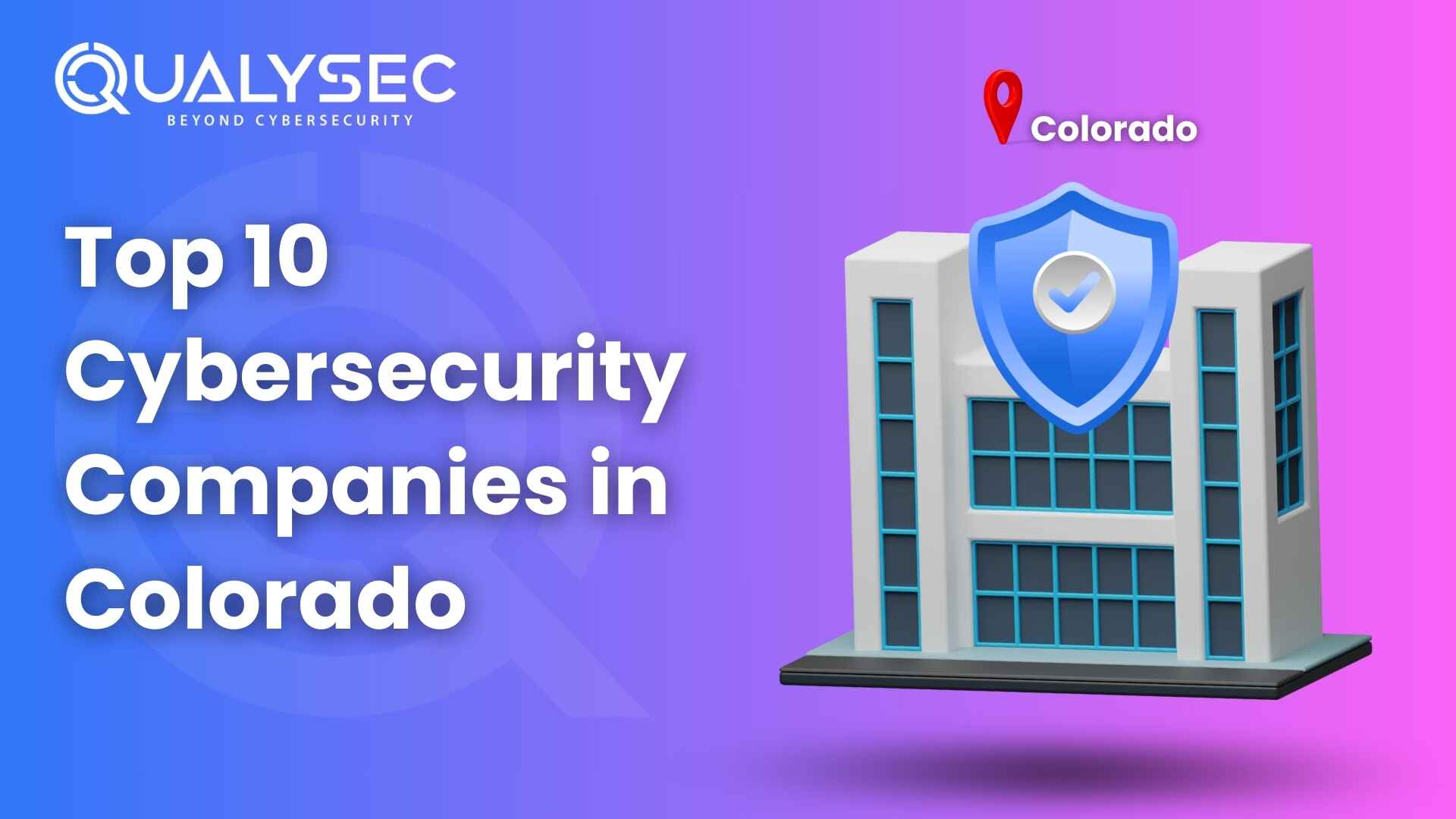

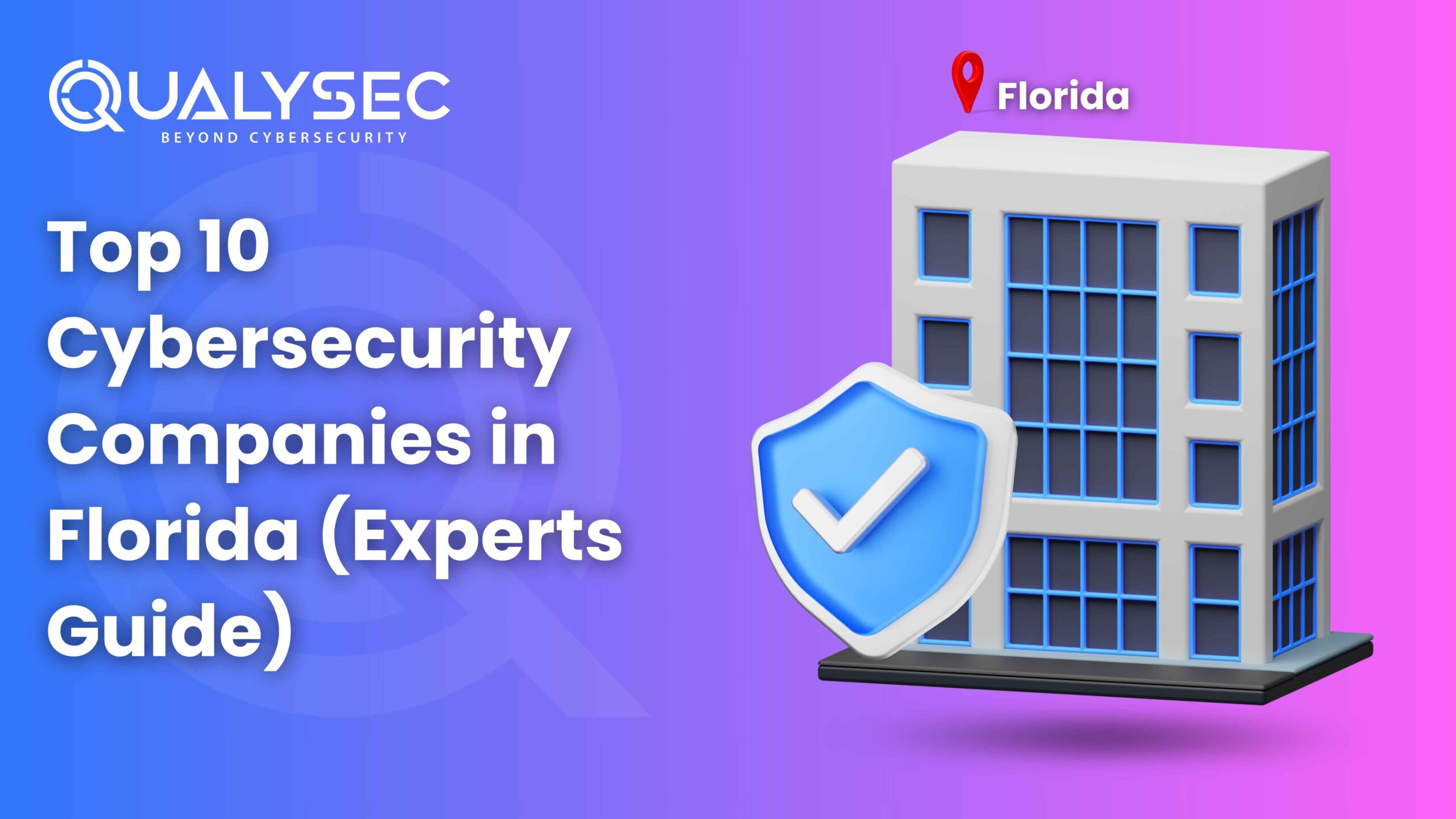










































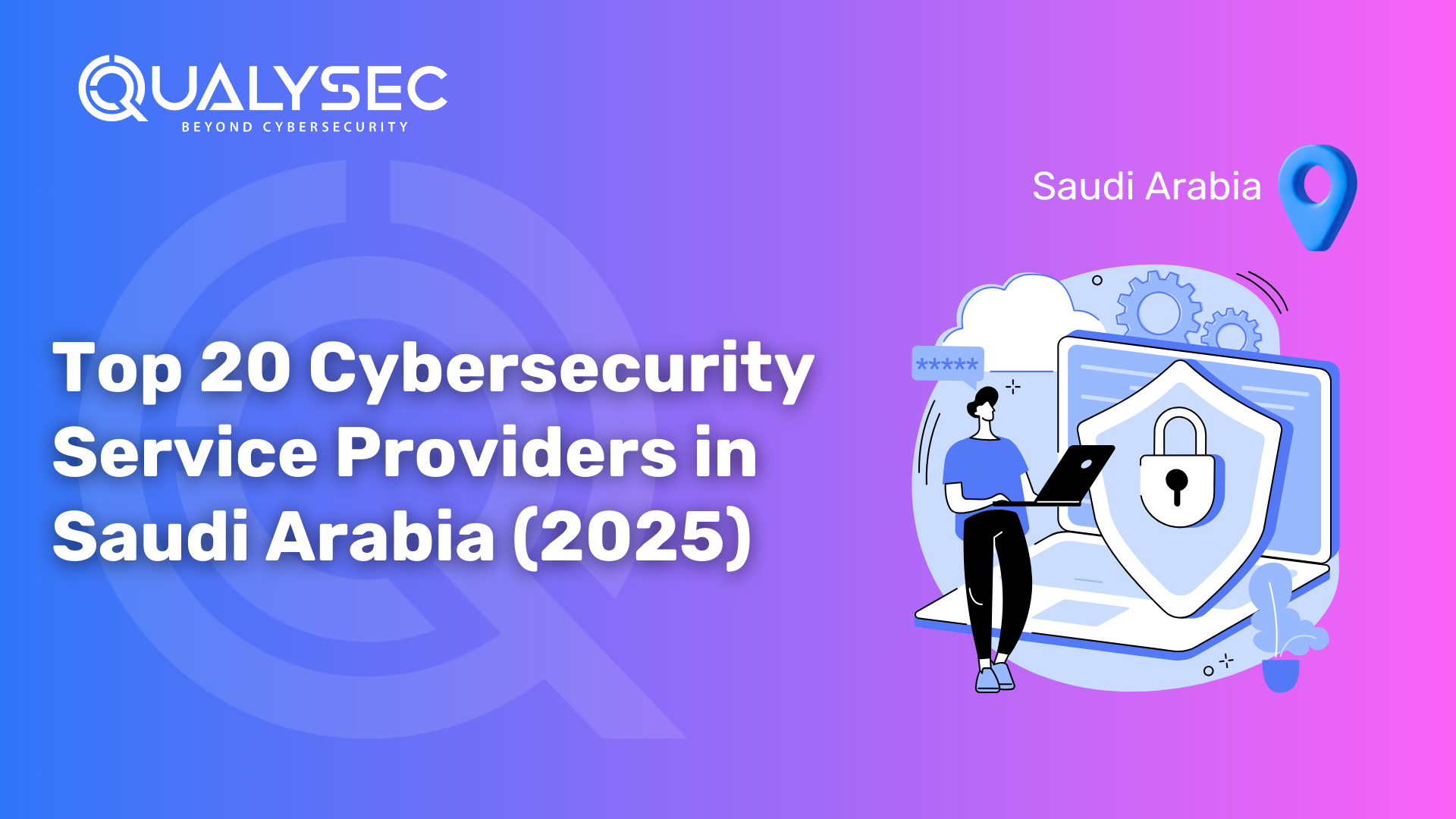
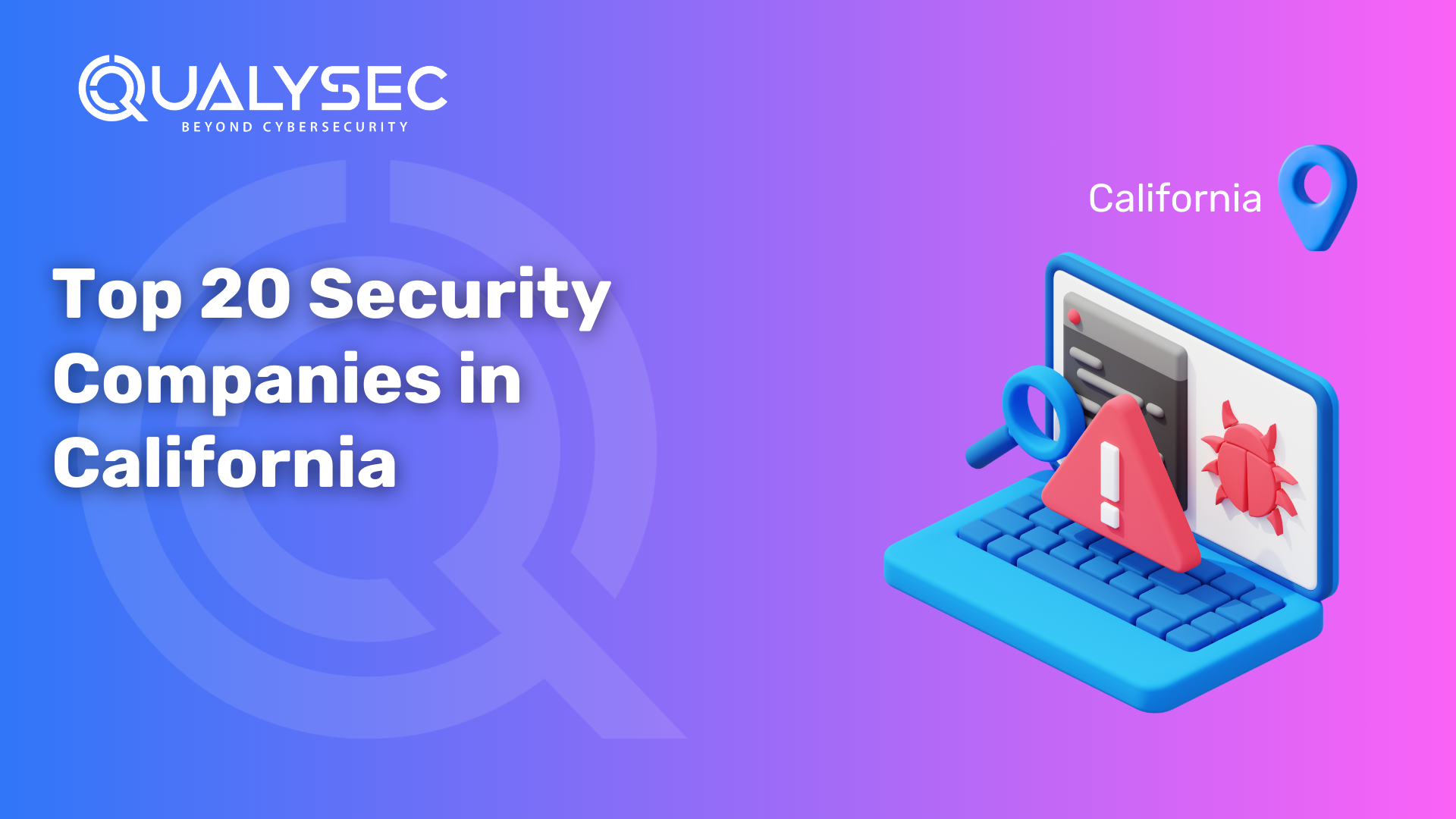







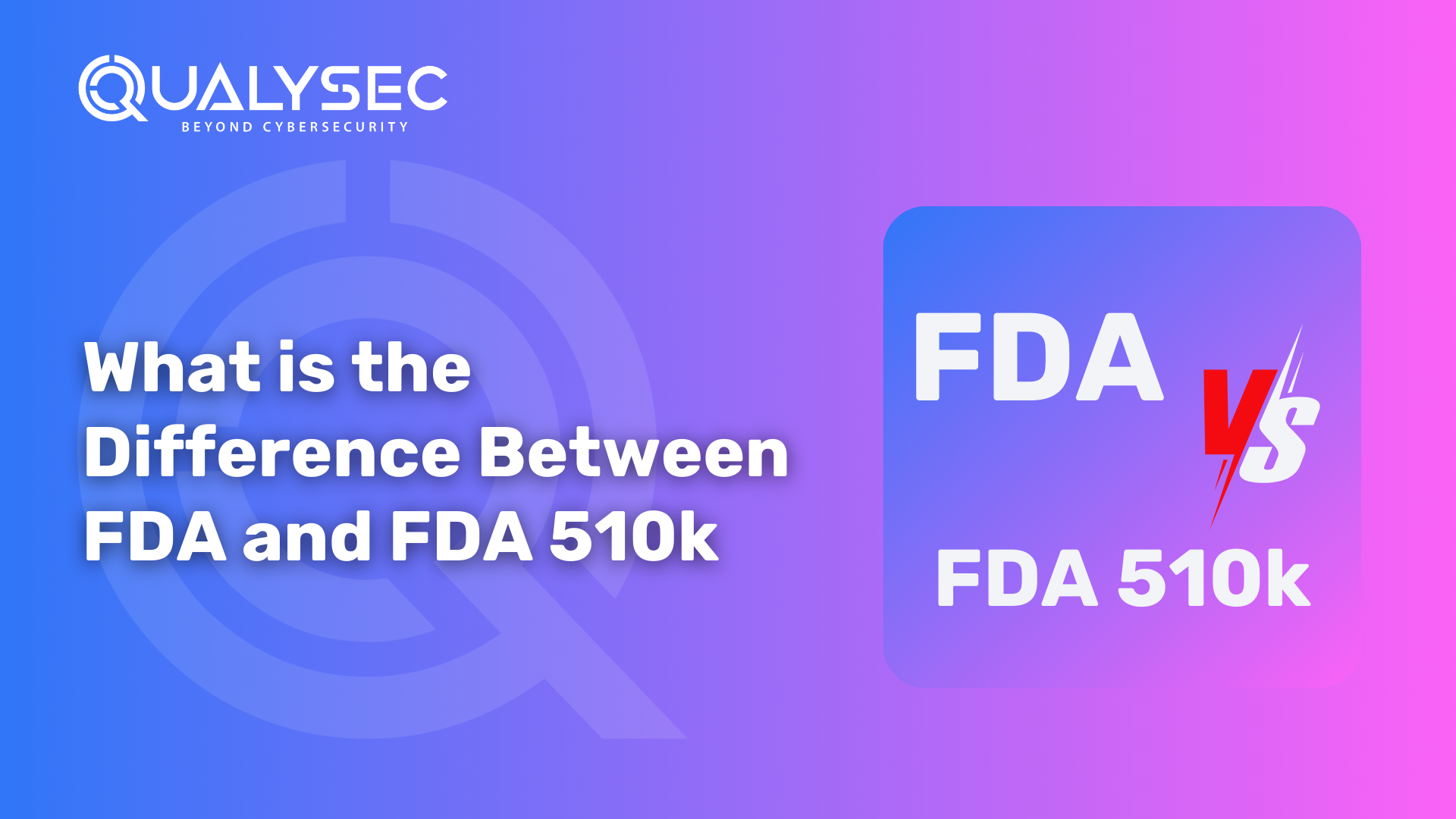









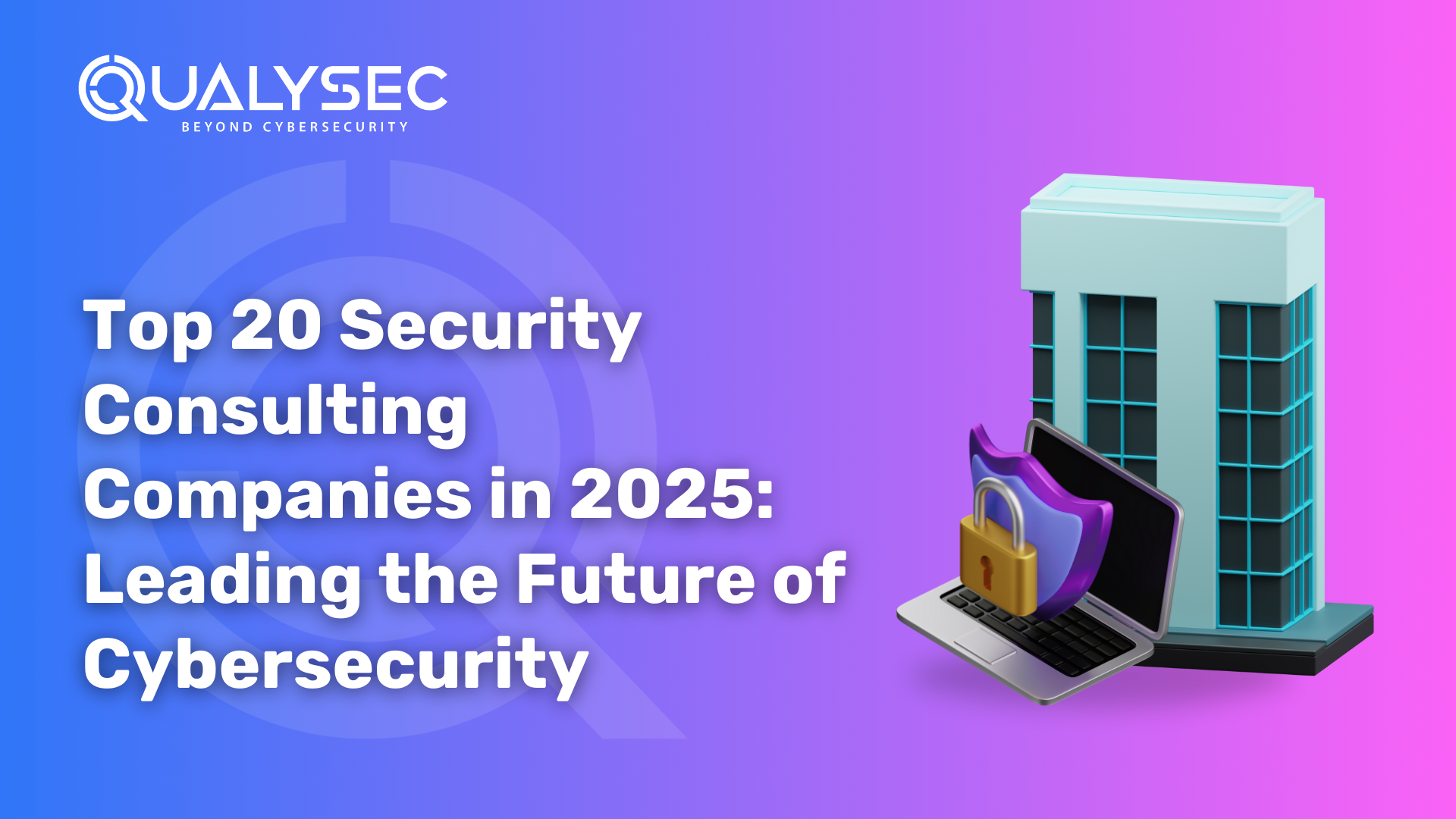
























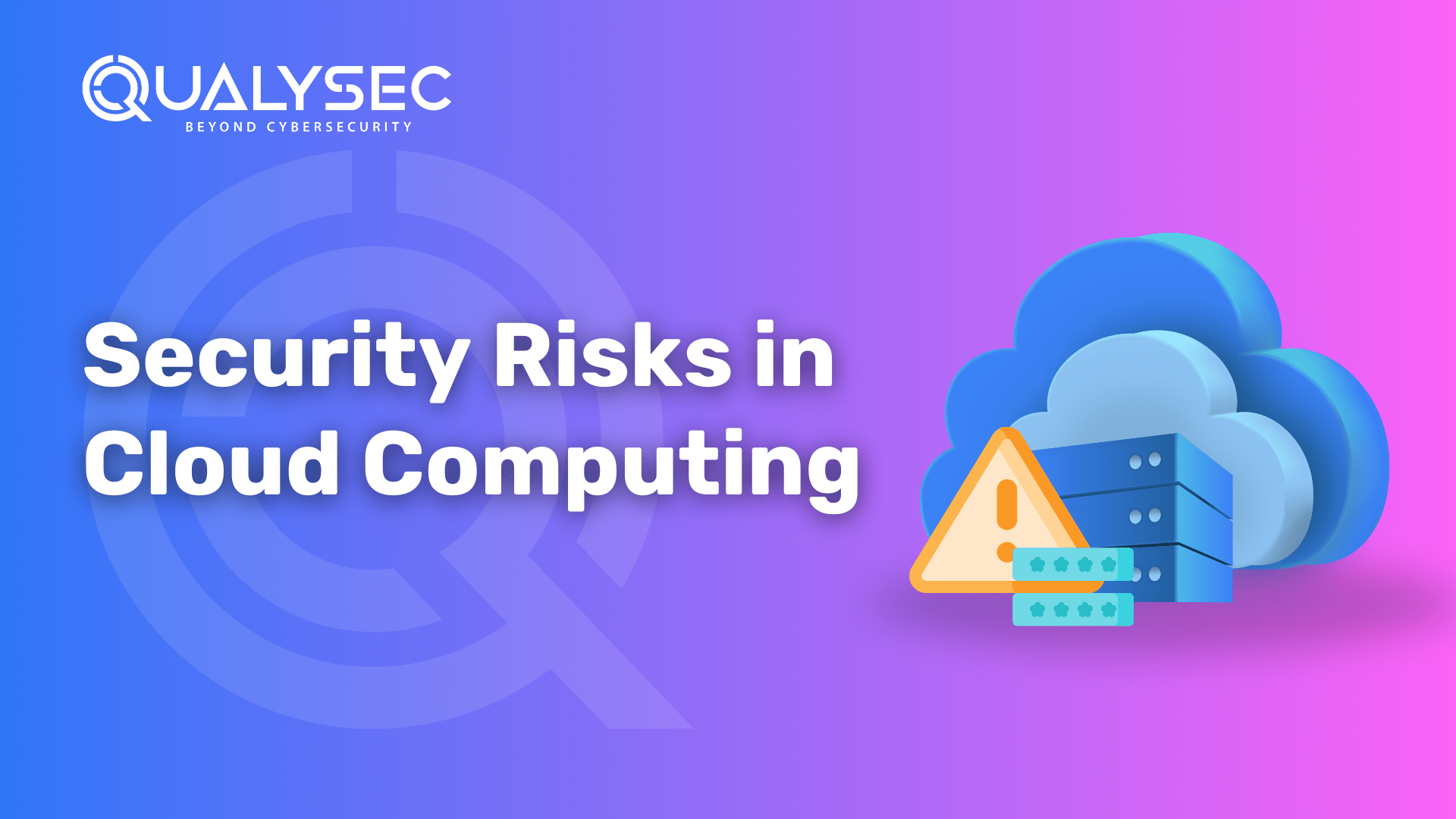







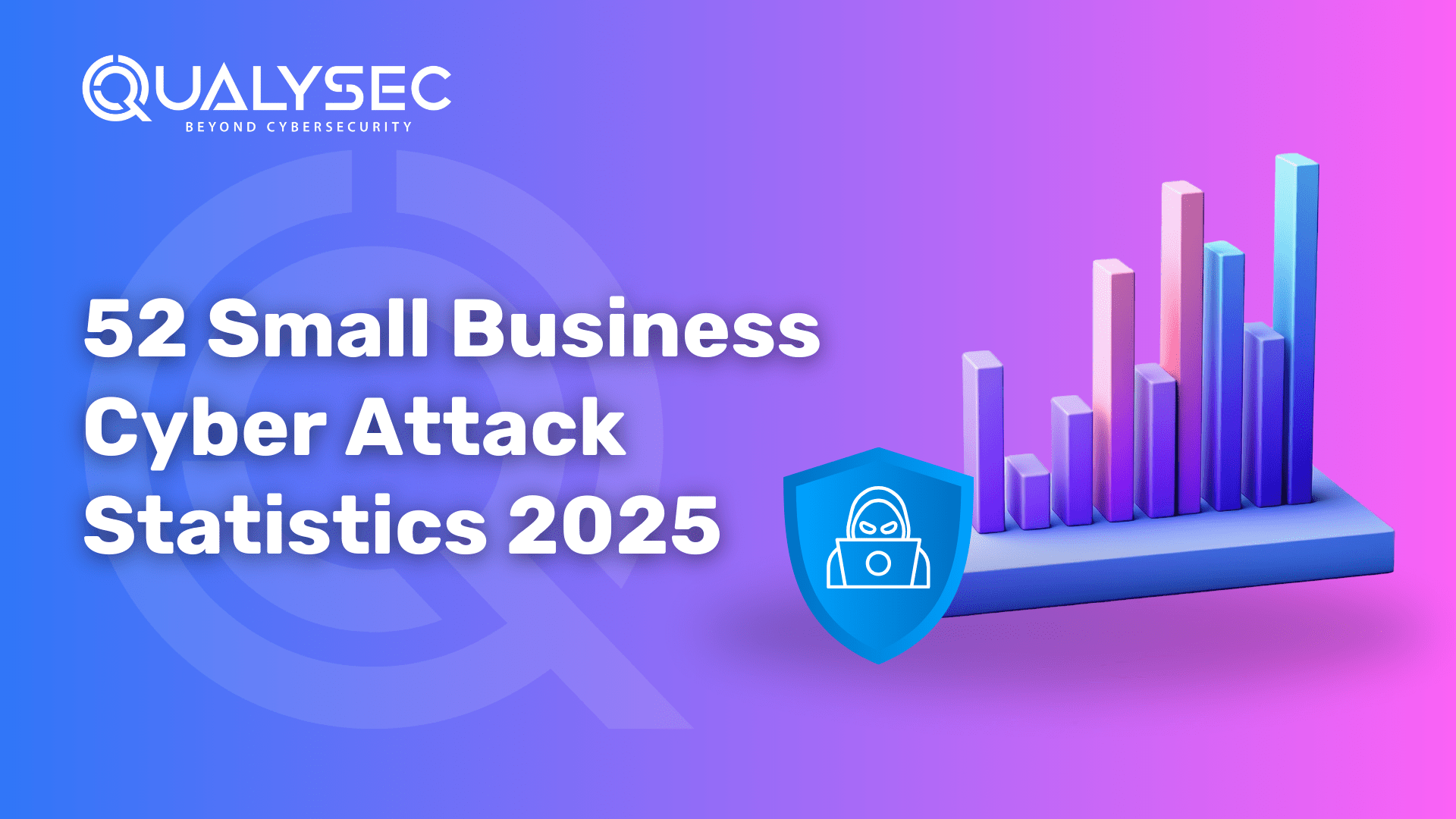

















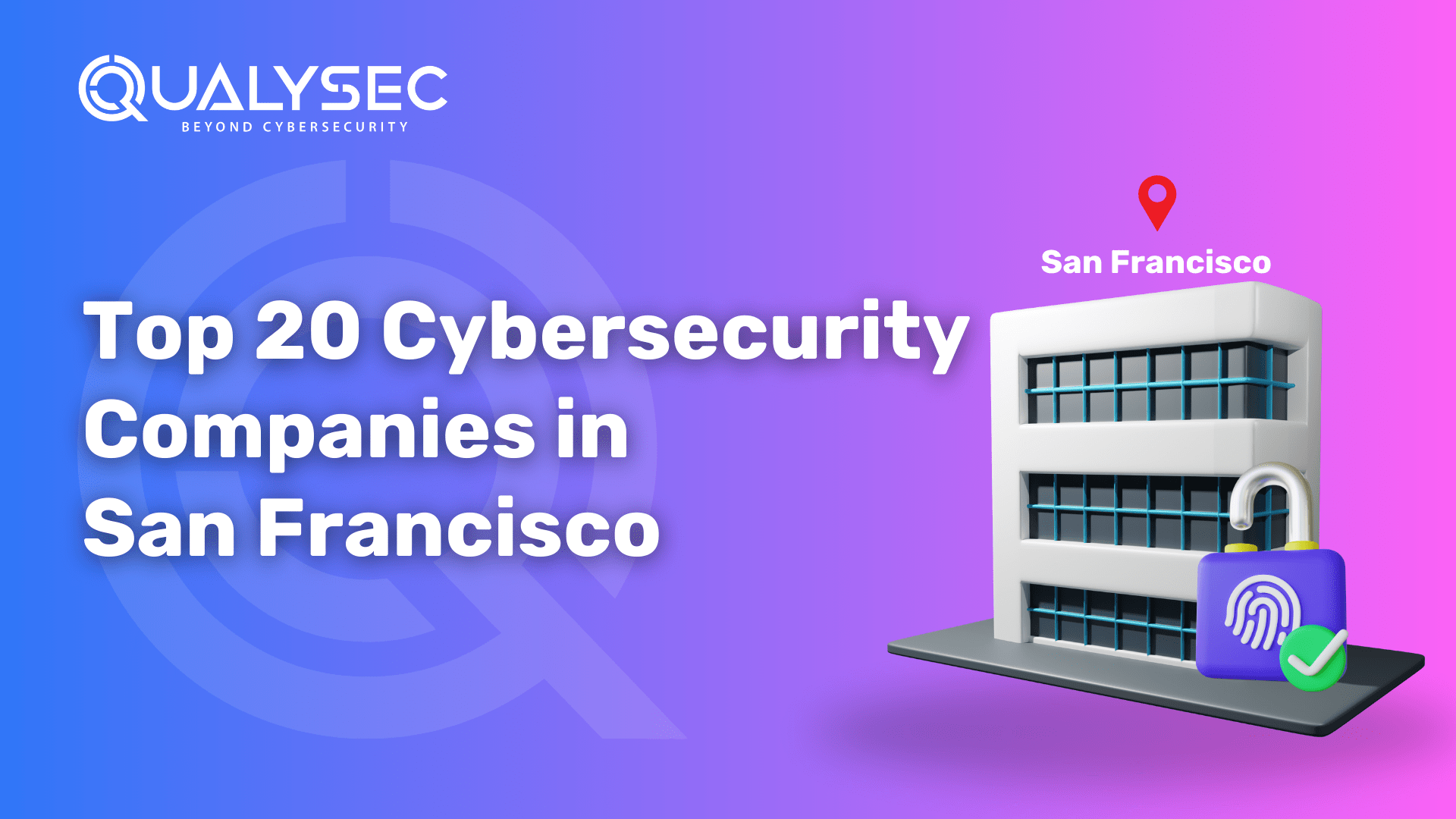








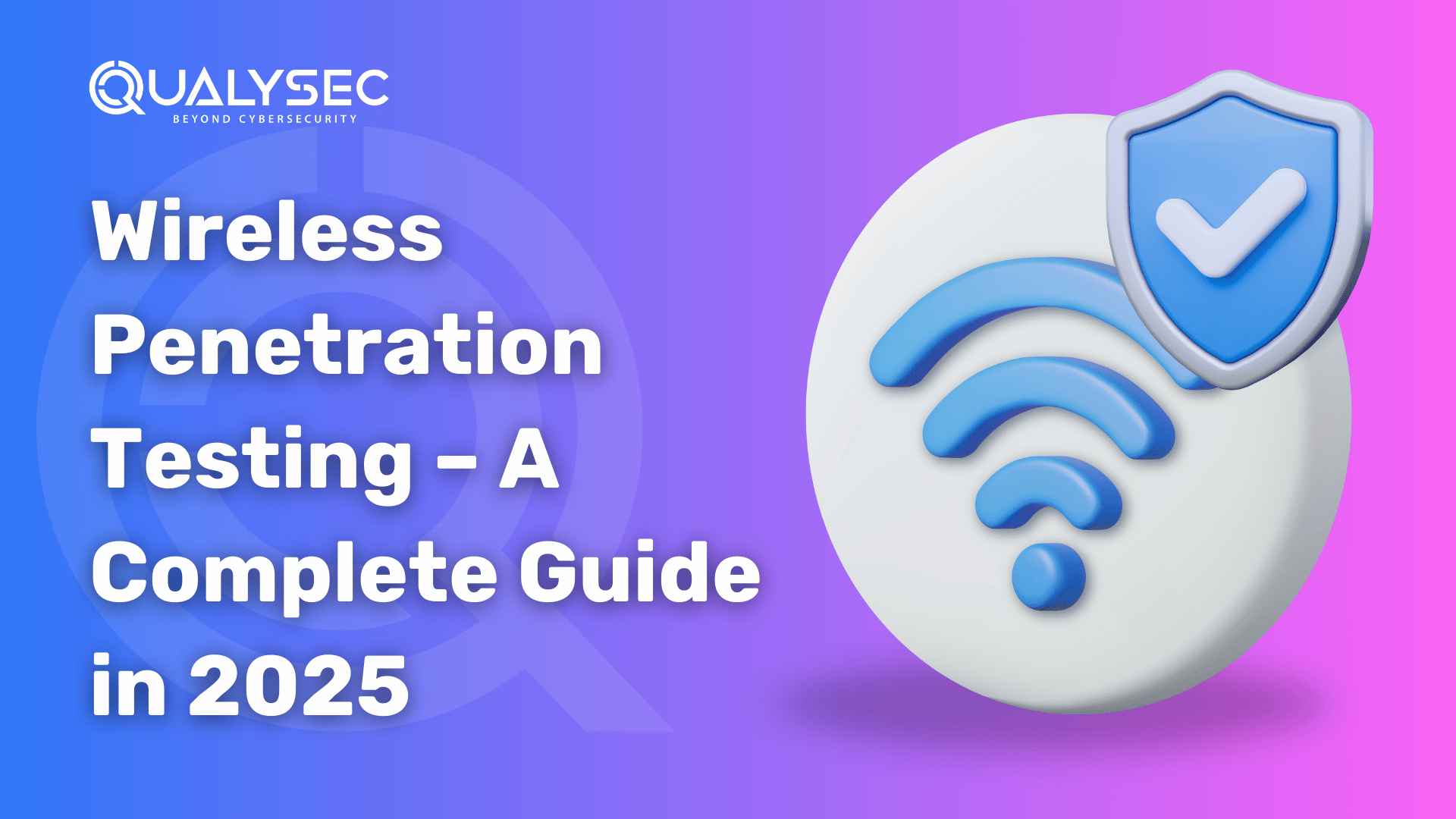




























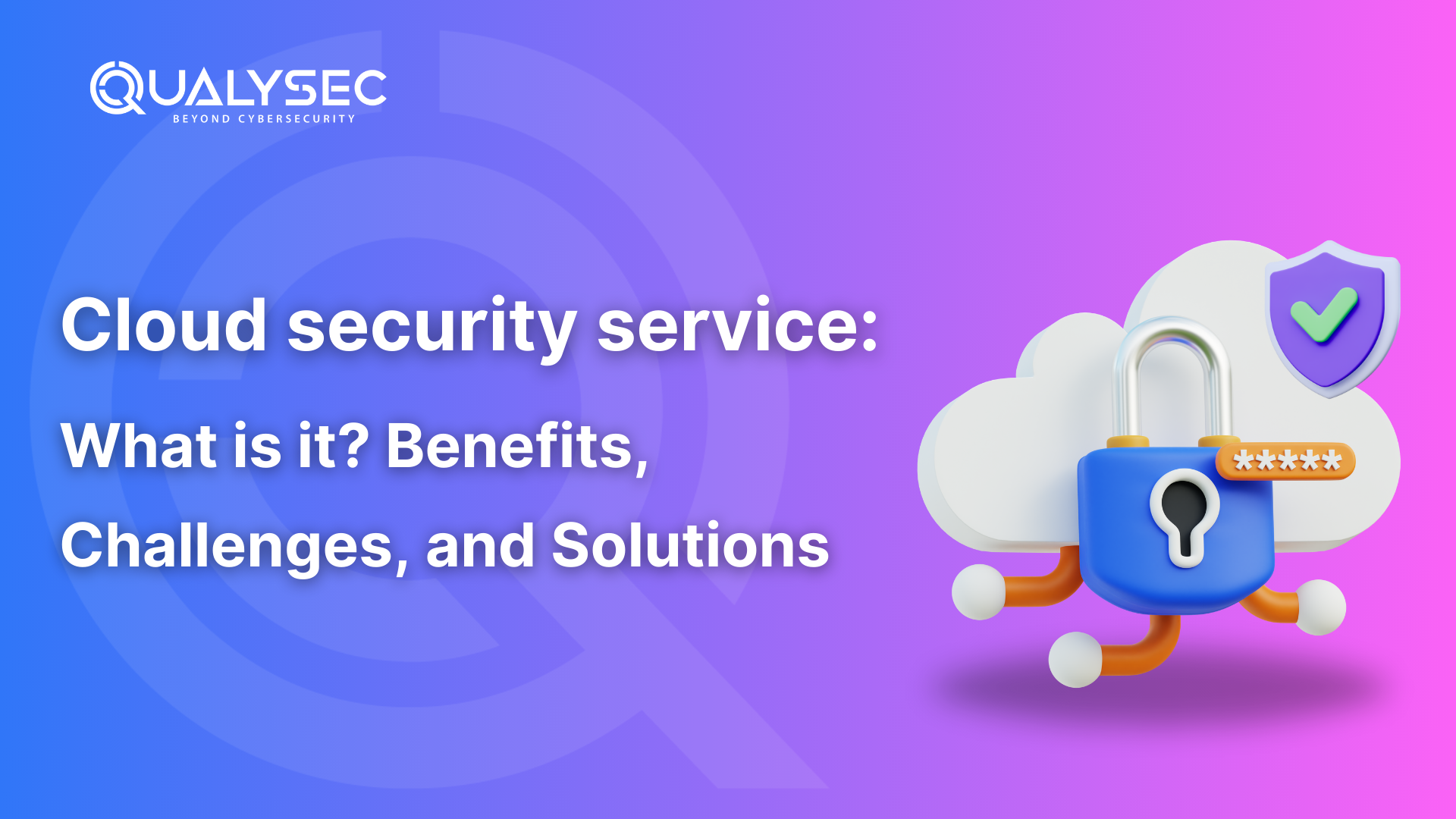


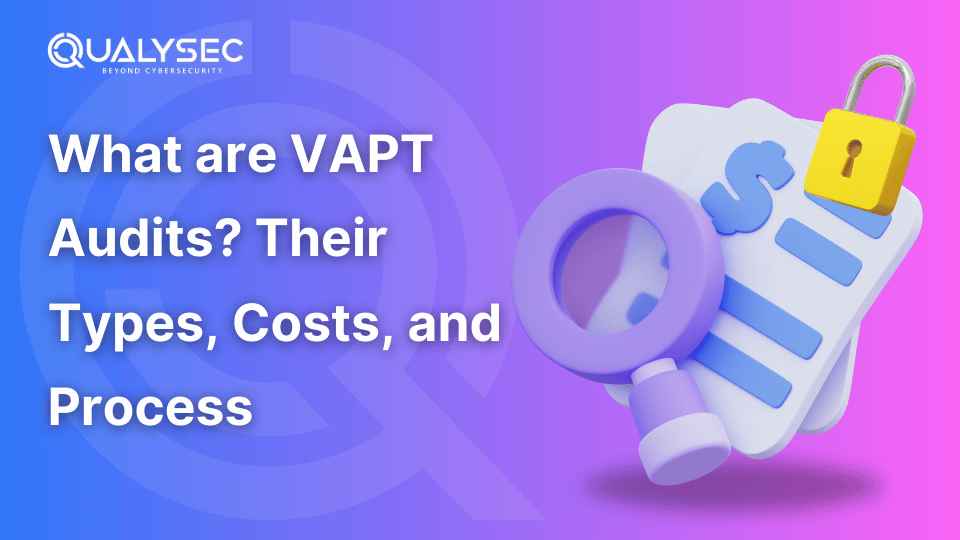








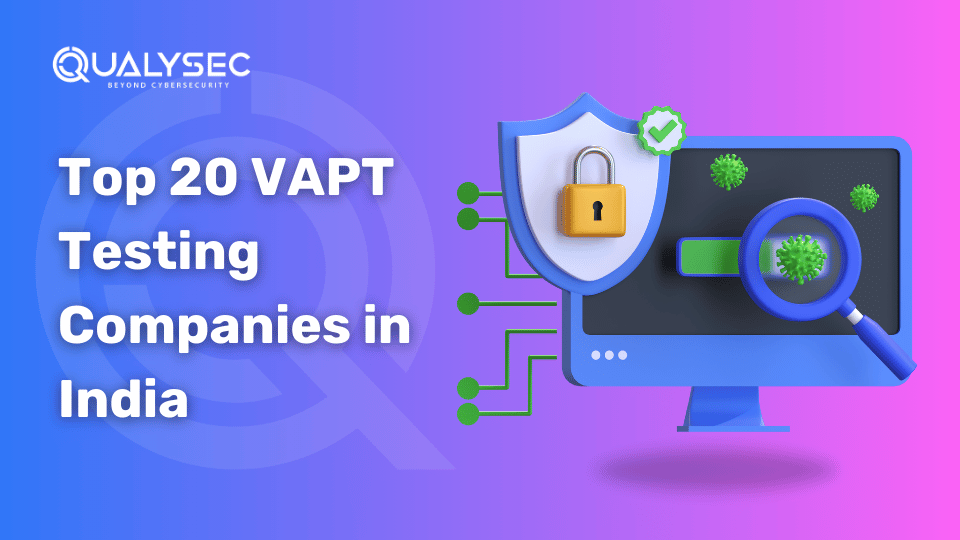


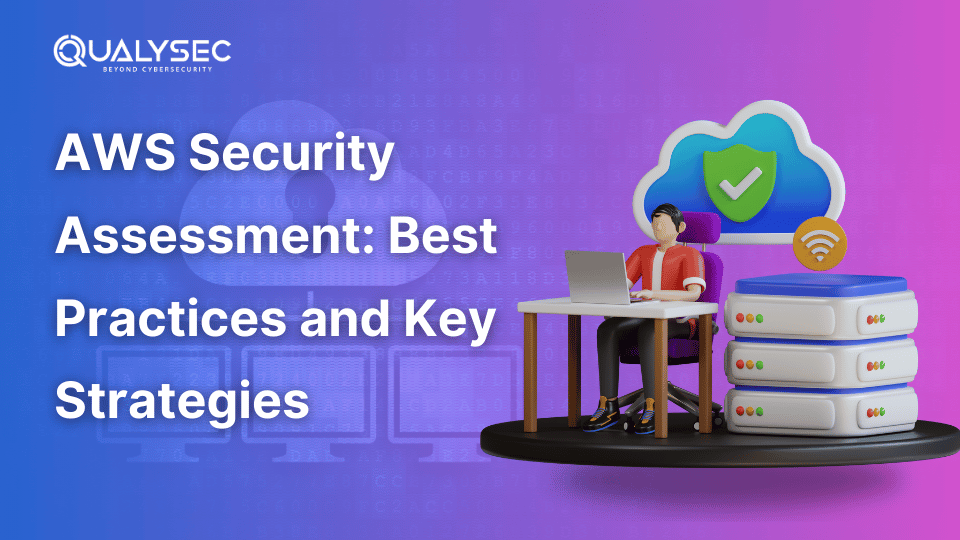




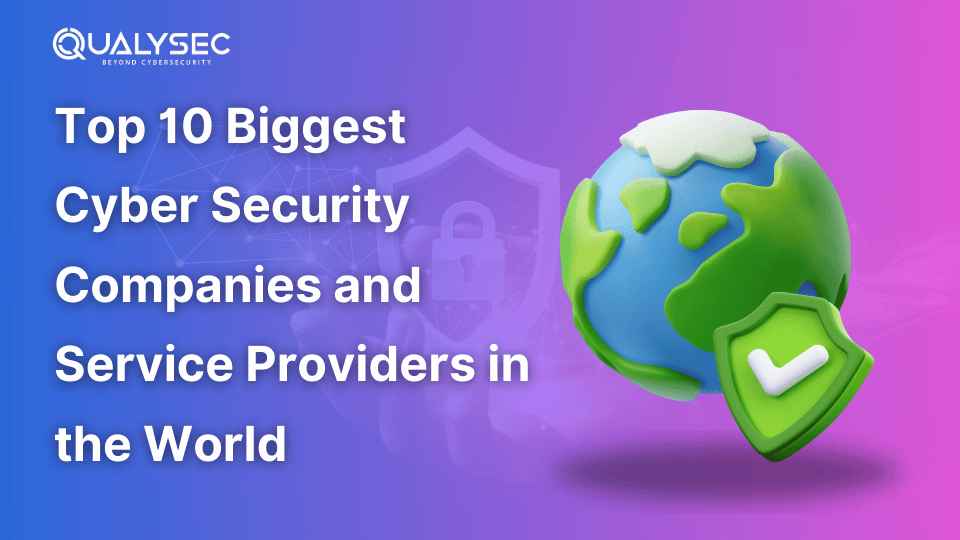















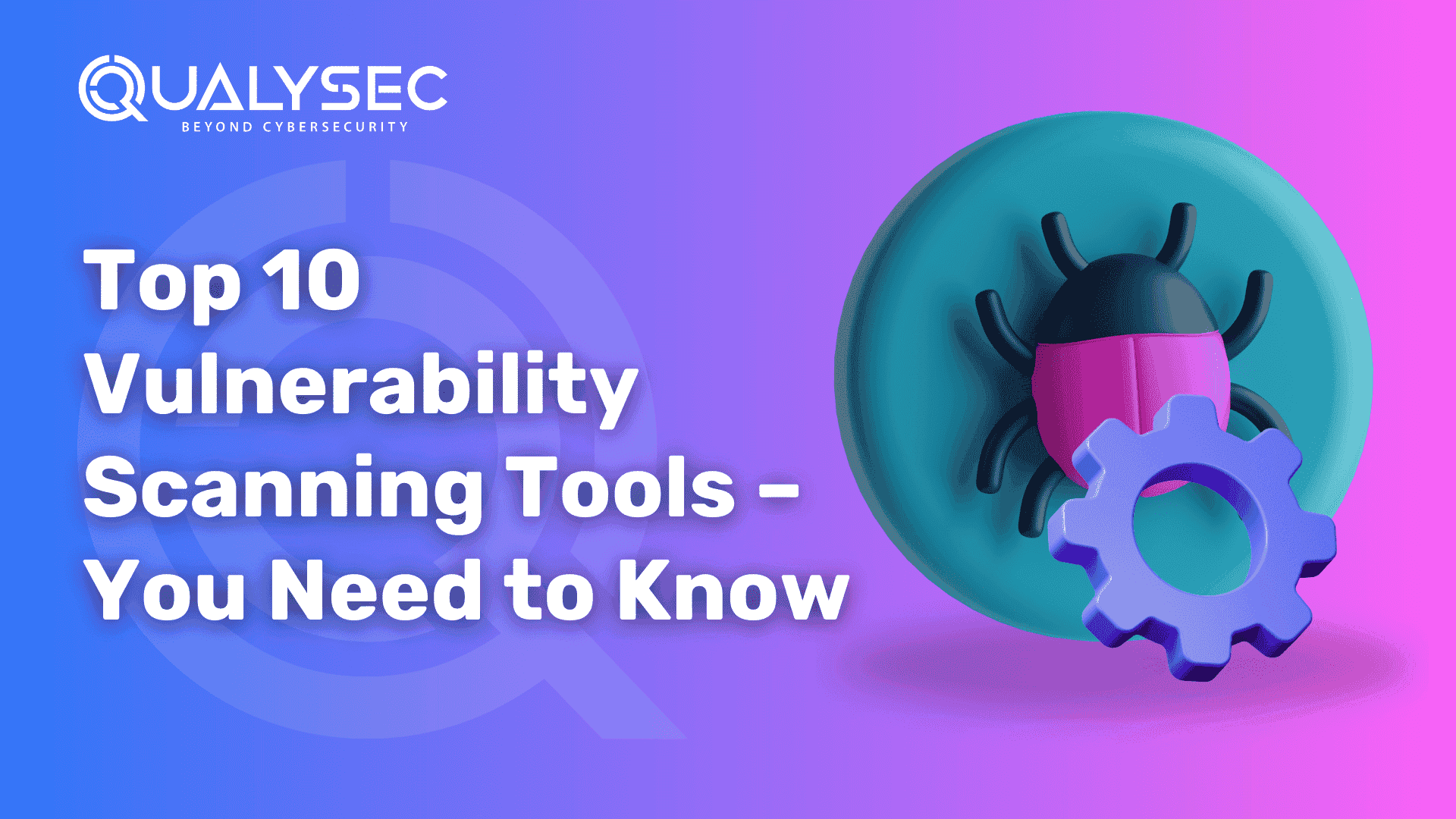


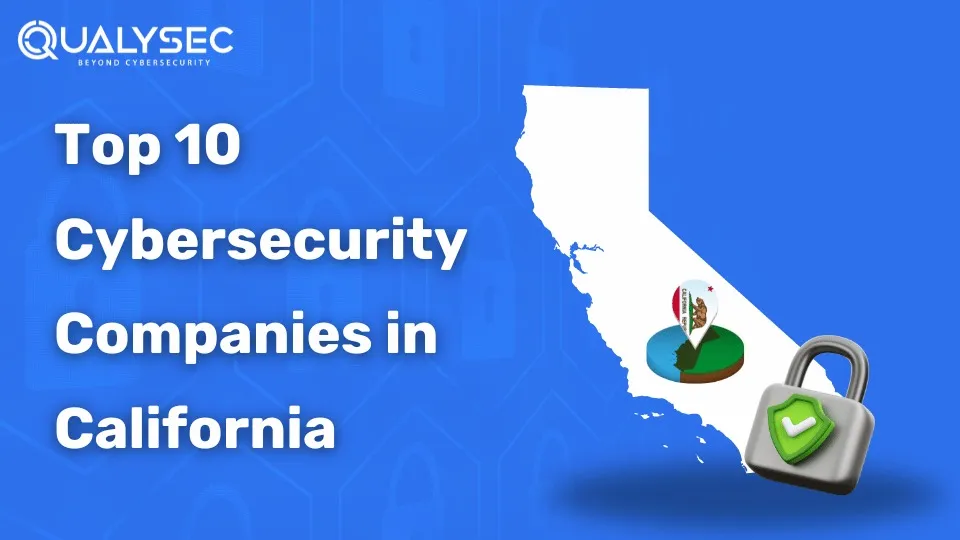
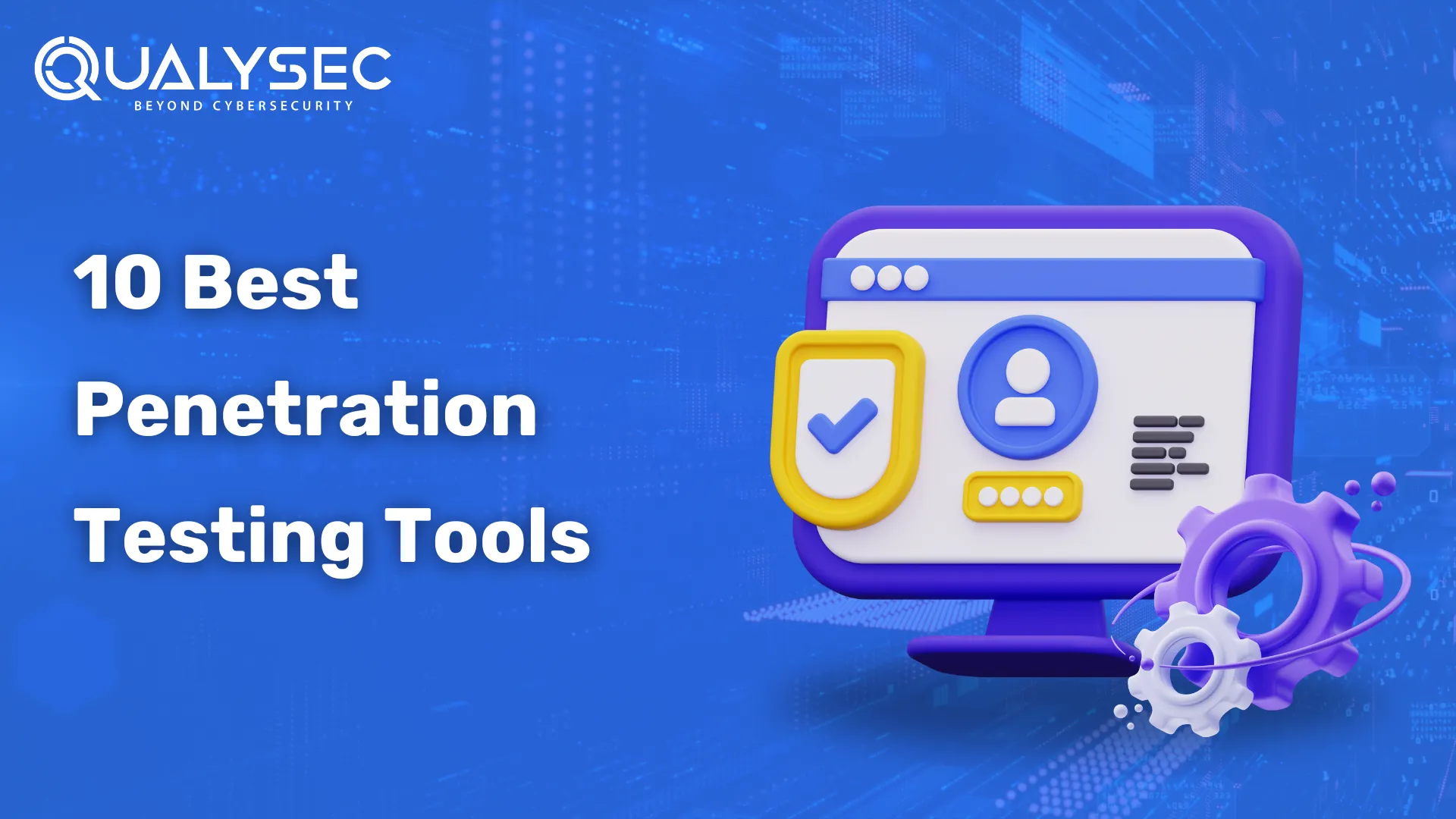





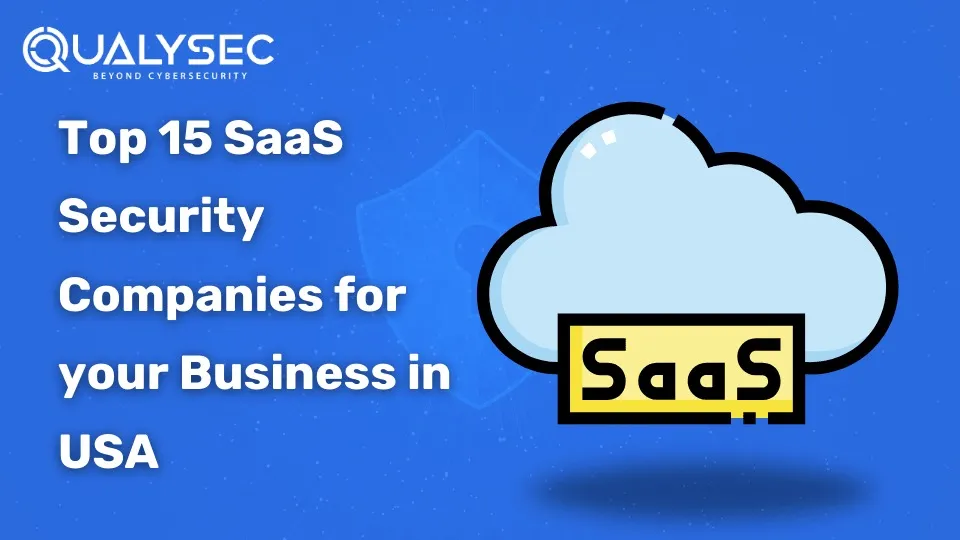



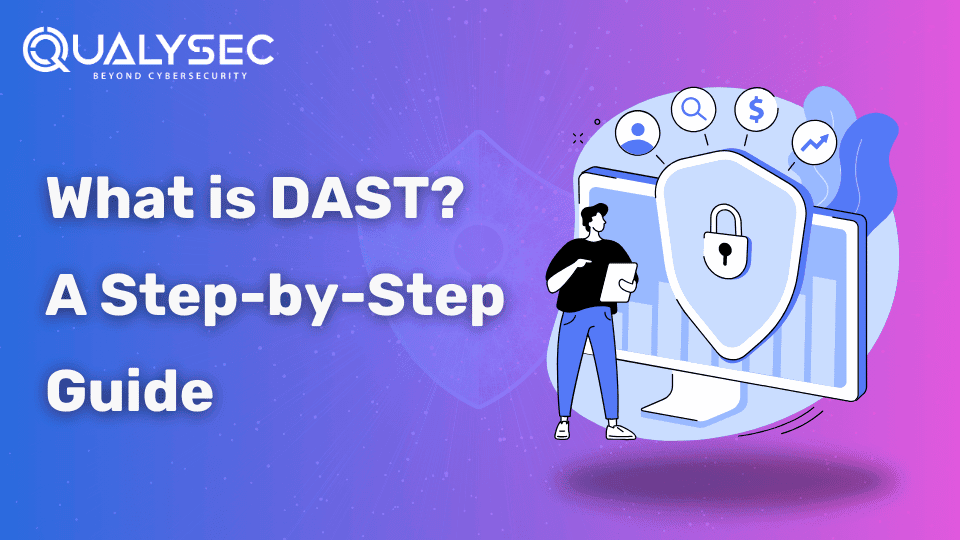


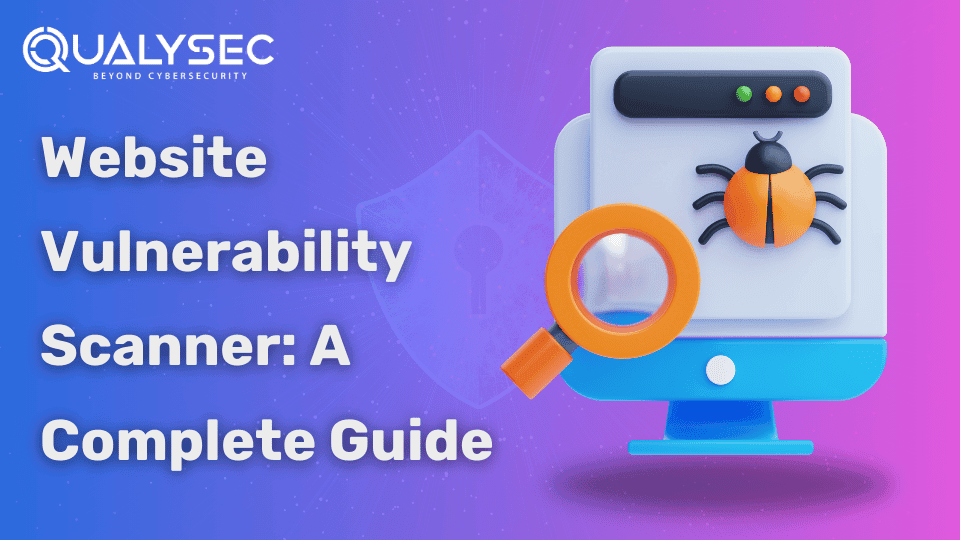

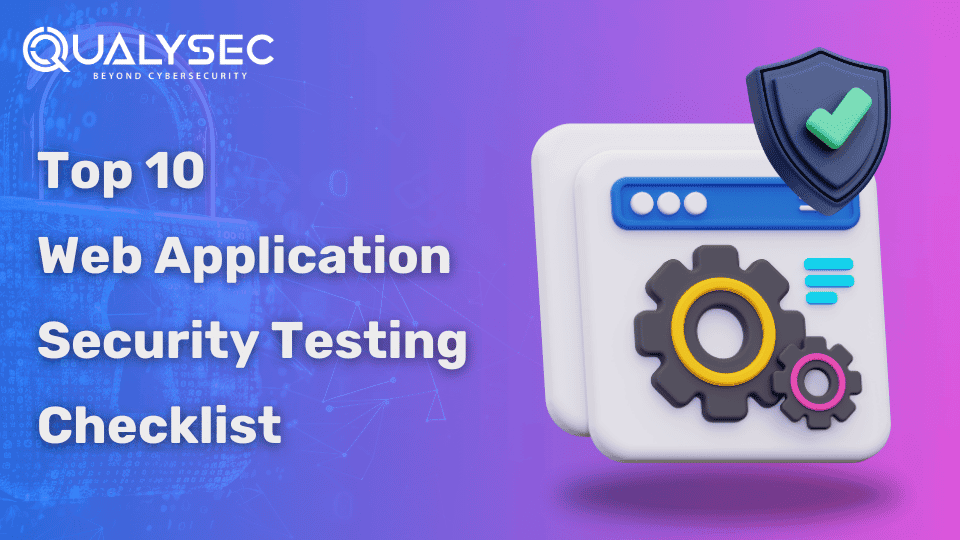

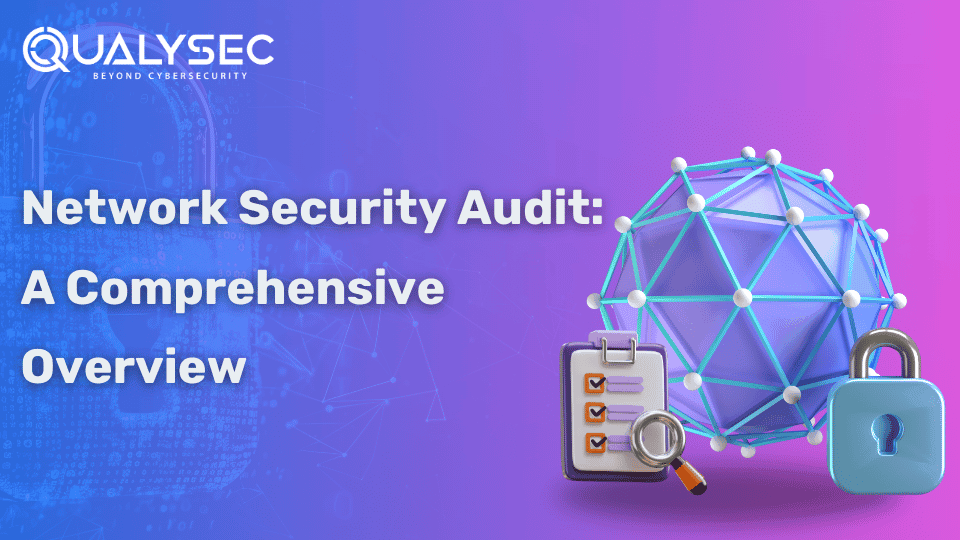











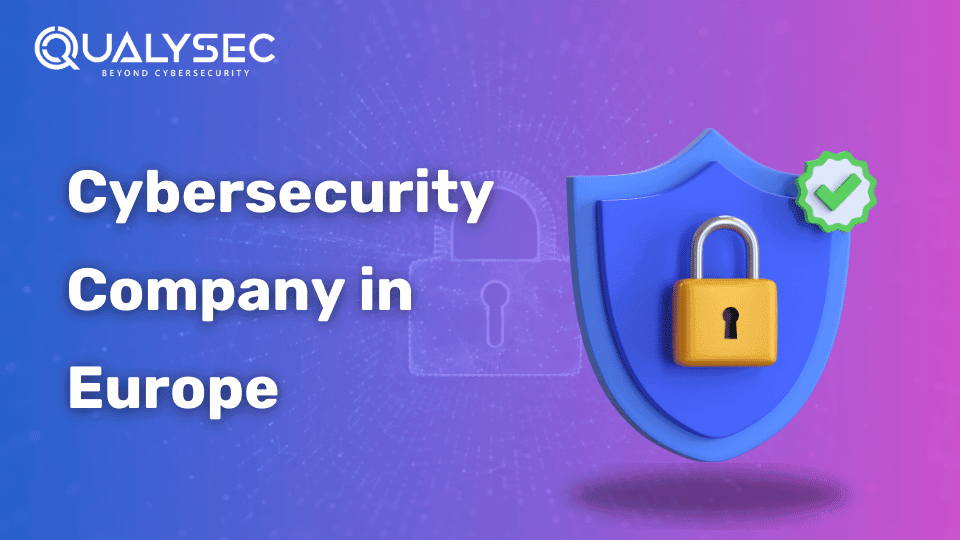
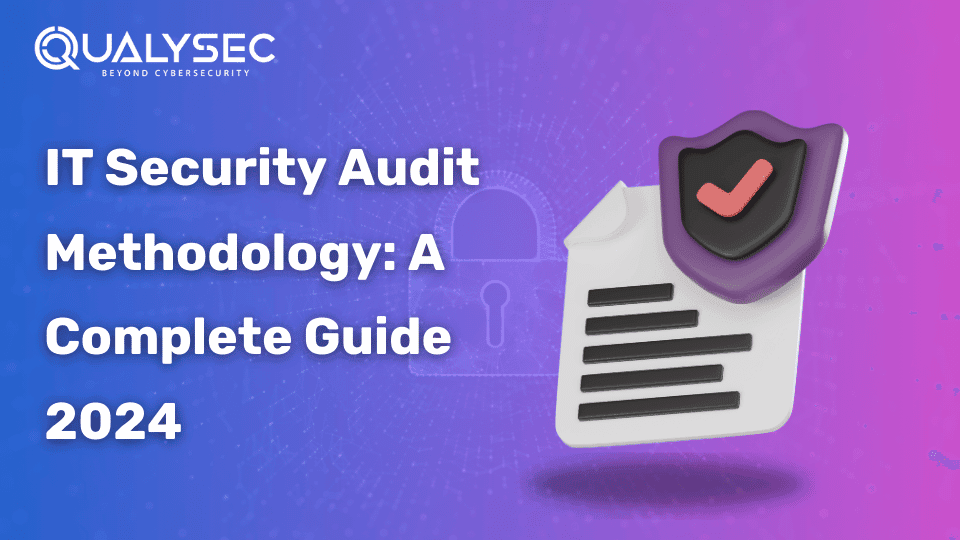



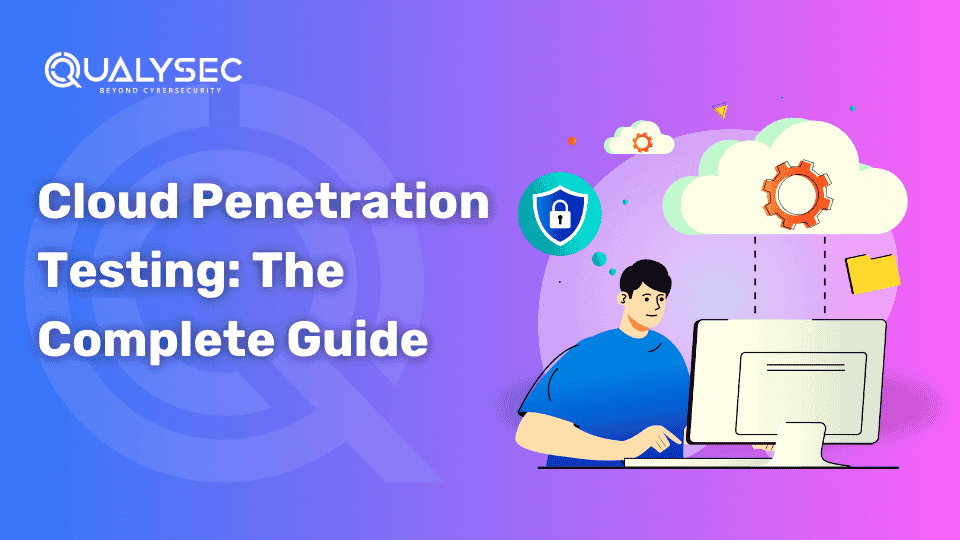


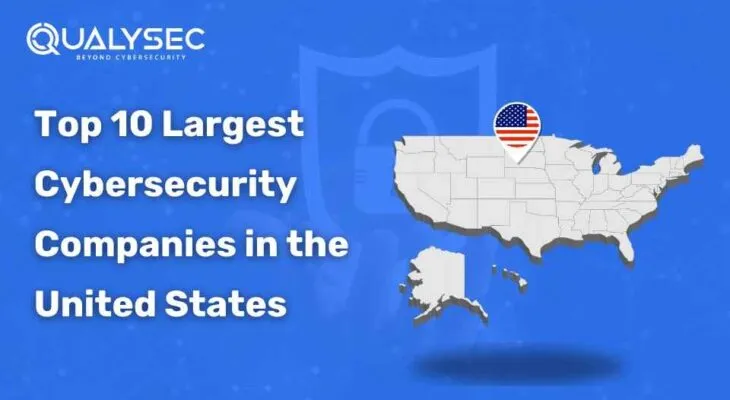


























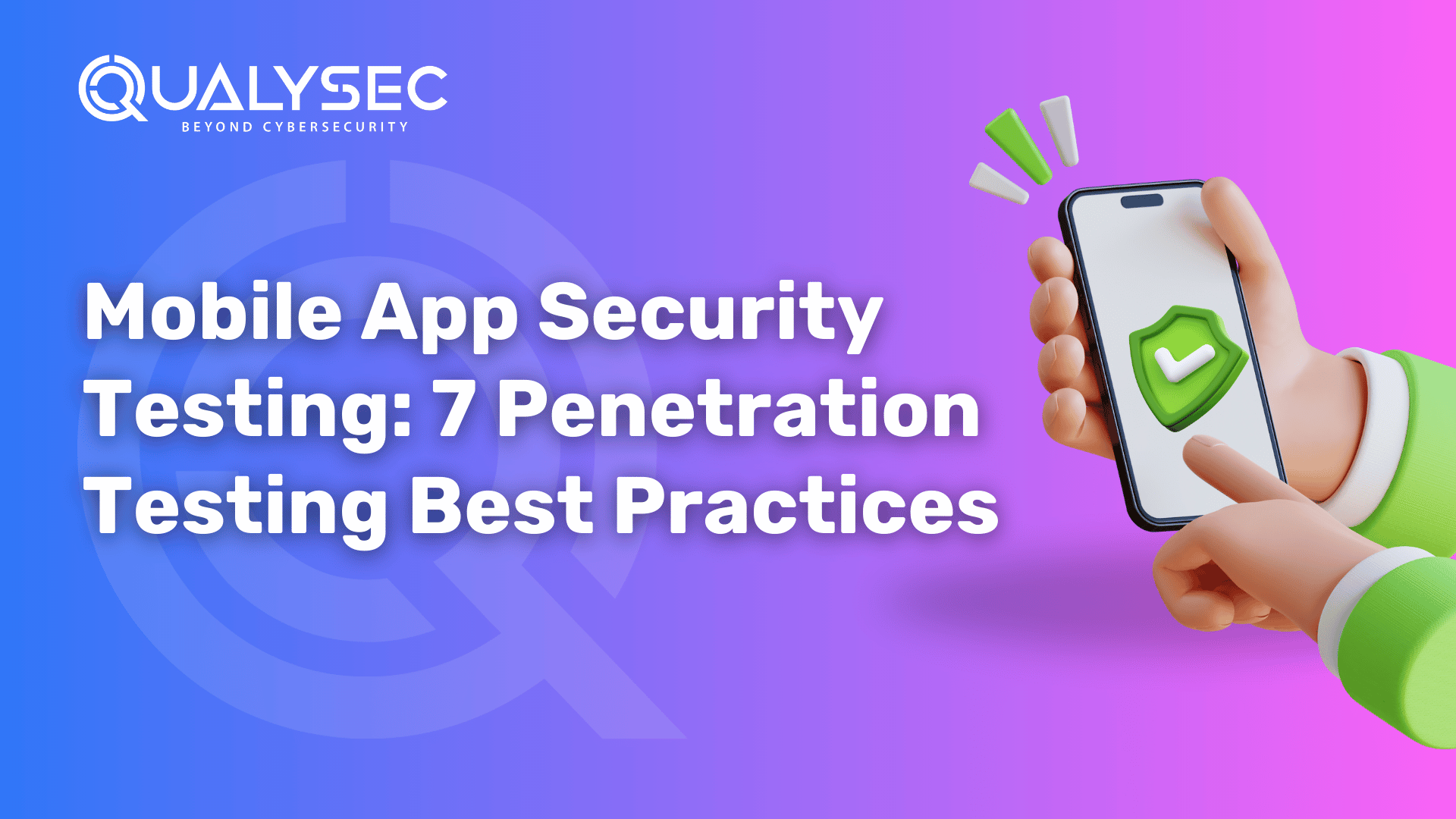














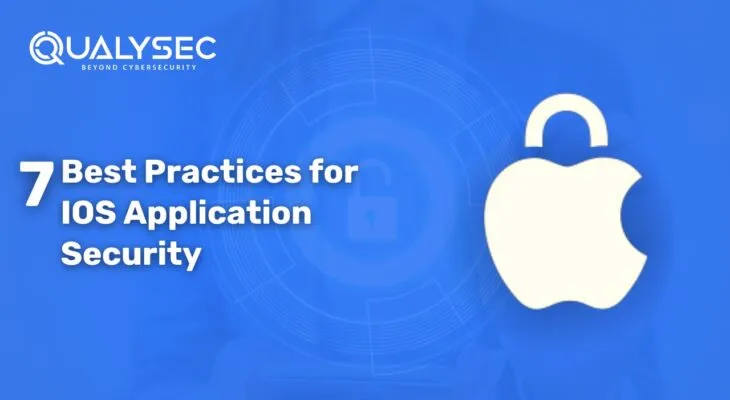


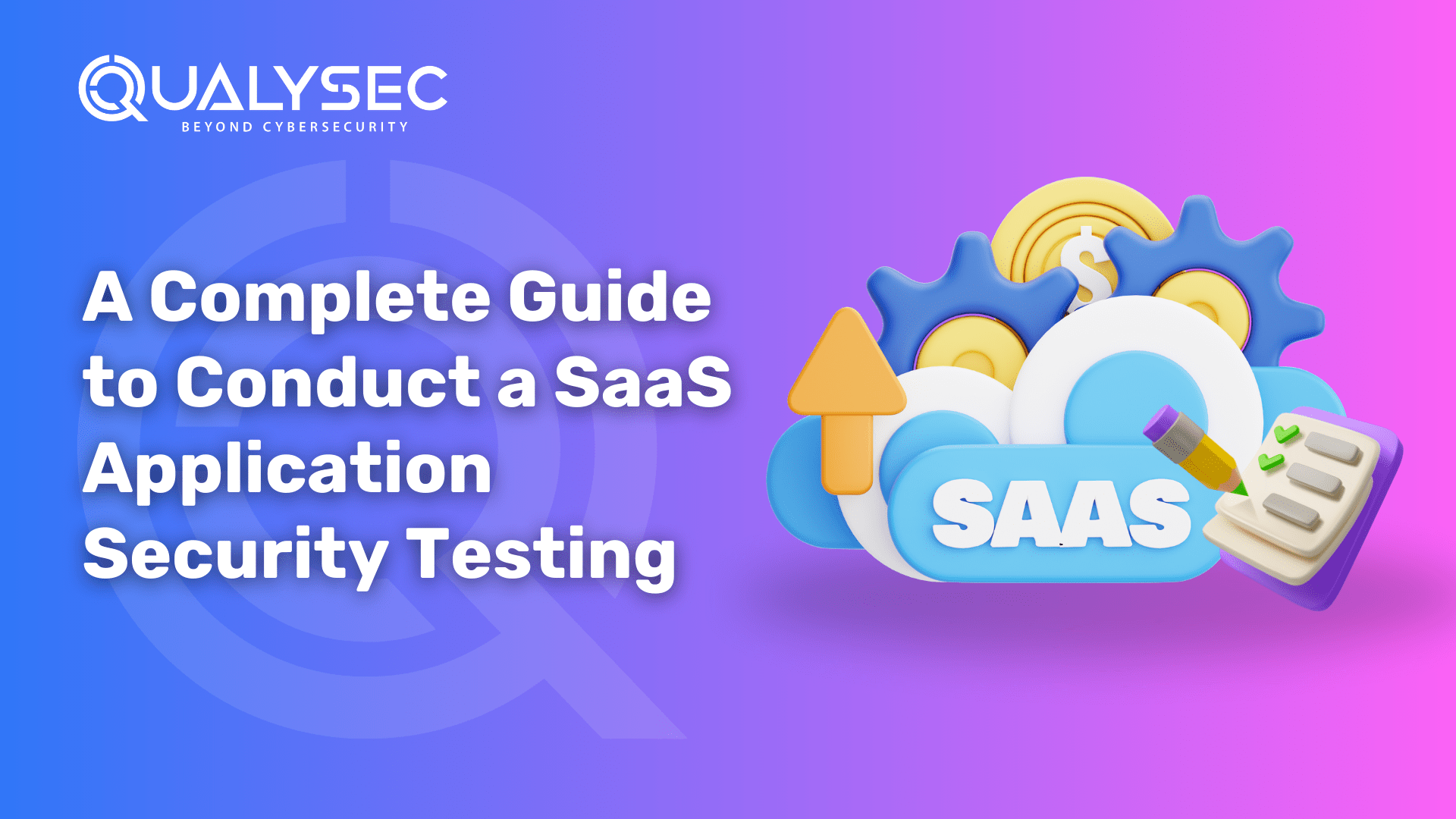





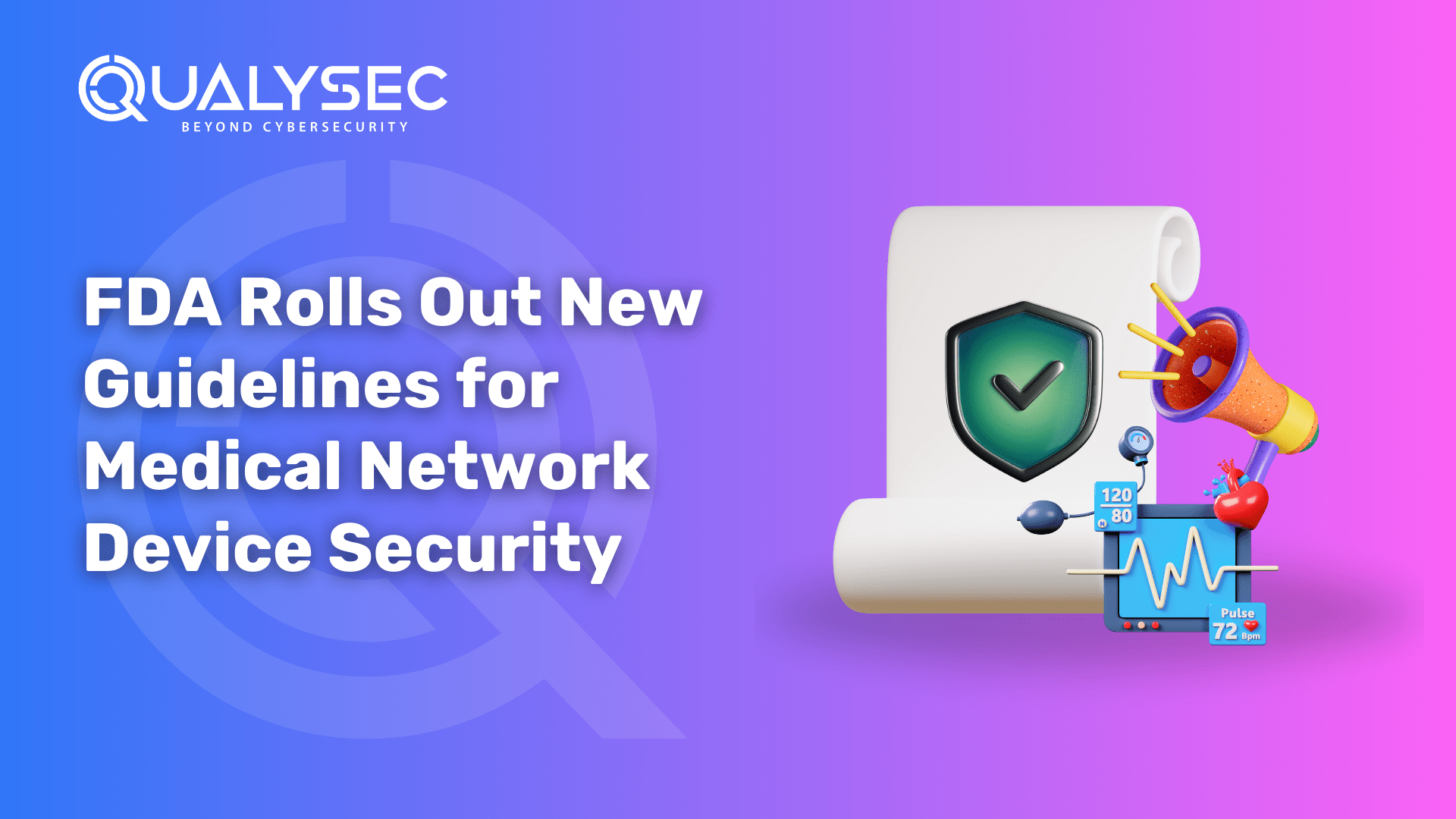





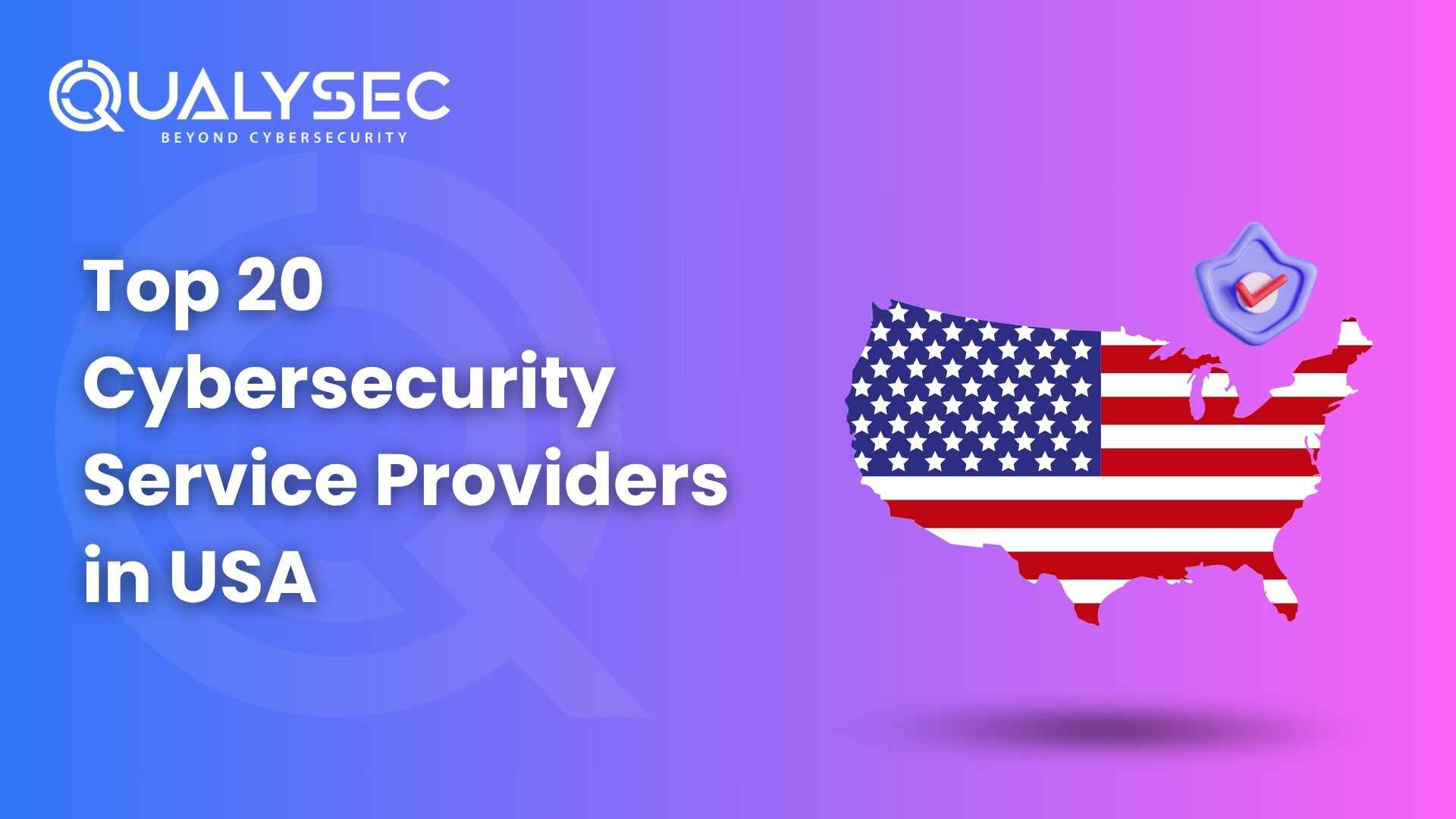










































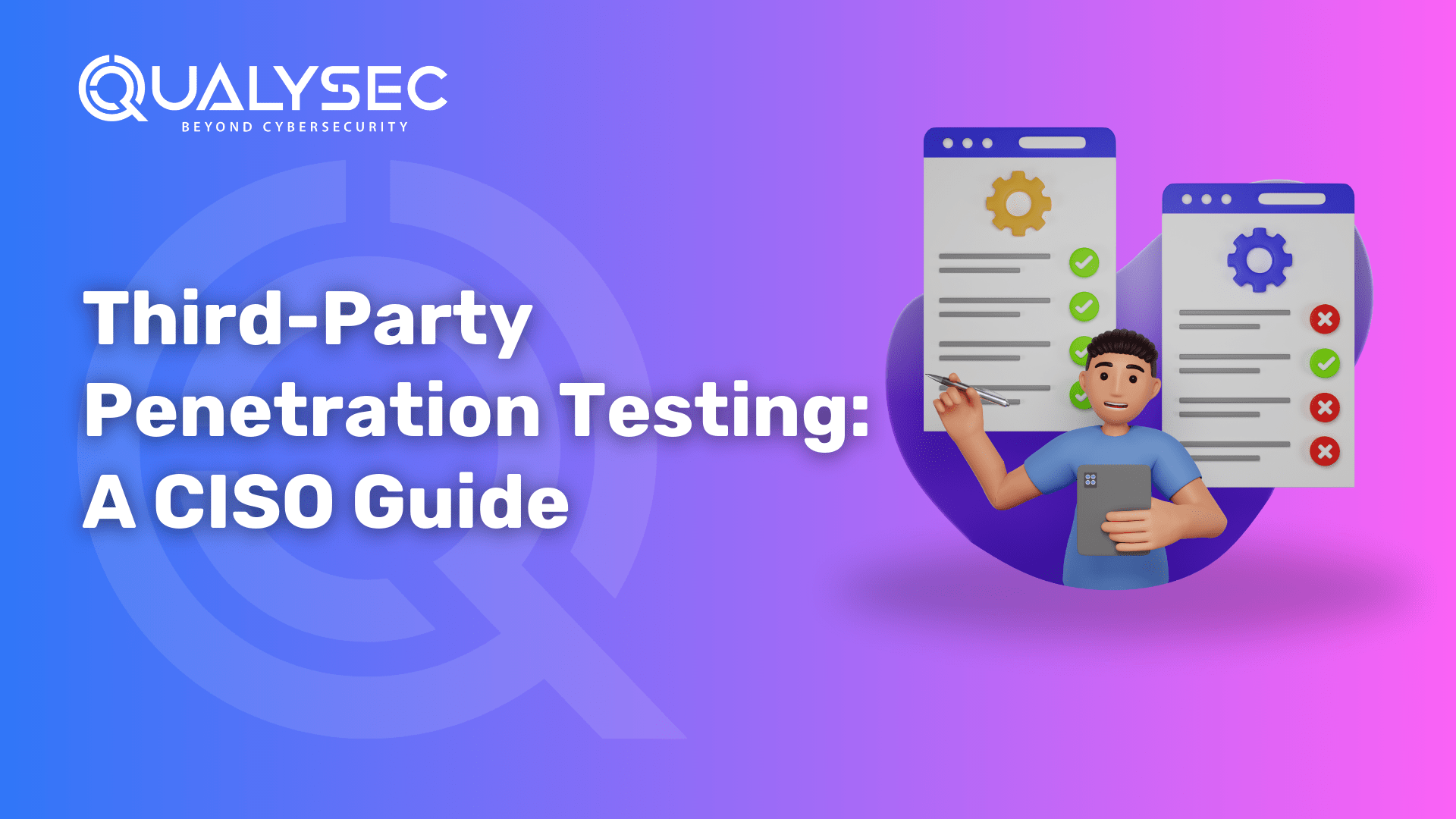





































































































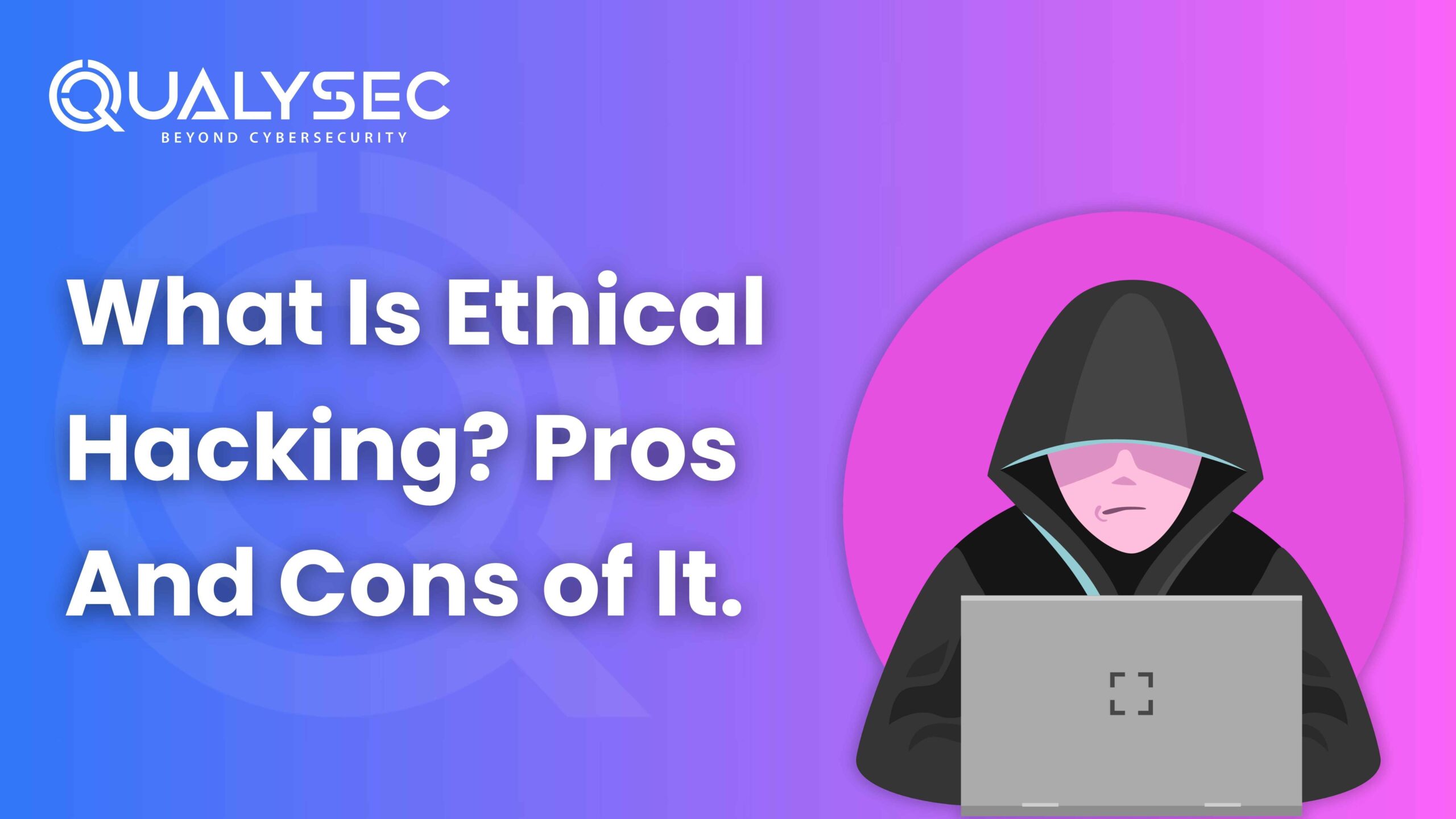







































0 Comments